Our 40 Favorite Albums of 2024 So Far
Summer is here, we’re halfway through 2024, and there’s already been too much good music this year to keep track of. We narrowed down our many favorites (released between January 1 and June 30) to a list of the 40 albums that currently stand out to us the most from this year, with records ranging from the year’s brattiest rave-pop album to one of the heaviest metalcore bands around to various forms of psychedelia to rising punk bands to weirdo rappers to meditative jazz to brilliant solo records from members of Sonic Youth and Portishead, and beyond. We didn’t rank them (we’ll save that for the end of the year), but read on for the list in alphabetical order.
Adrianne Lenker – Bright Future
4AD
We tend to expect perfection from A-list artists, especially when they’ve given it to us time and time again, but it’s also always a unique thrill when they choose to not give us that. As with Radiohead offshoot The Smile’s new album, Big Thief leader Adrianne Lenker’s latest solo LP feels more about giving us a glimpse into the journey than worrying about polishing off every last edge. It’s her first solo LP since 2020’s songs and instrumentals, but while those albums were literally solo albums, performed entirely by Adrianne, Bright Future finds her working with a band. Frequent Big Thief collaborator (and Twain leader) Mat Davidson, singer/songwriter Nick Hakim, and Swedish composer Josefin Runsteen contributed guitar/piano, piano, and violin/percussion, respectively, and all three of them sing alongside Adrianne. songs / instrumentals producer Philip Weinrobe reprises his role, and this time also contributes piano and banjo. The five of them camped out together at a 150-year-old analog studio in the woods called Double Infinity, recording in the daytime and hanging out, listening to records by the fireplace at night. Adrianne says she had “had no idea what the outcome would be” when they started the process, and when you listen to Bright Future, it really does sound like a group of people figuring things out as they go, rather than working towards a predetermined goal.
The album varies between somber piano balladry and gentle folk/country songs to a seemingly off-the-cuff campfire singalong rendition of Big Thief’s “Vampire Empire” and the whimsical bounce of “Fool,” whose bent, plucked strings recall the more playful moments of Dragon New Warm Mountain I Believe In You. Adrianne’s lyrics range from stark, hyper-specific realism (“Do you remember coming to the hospital when I was fourteen?”) to wistful (“Leaning on the windowsill/You could write me someday and I think you will”) to more ambiguous moments like “Evol,” a song where Adrianne finds wordplay in spelling words backwards (“Speech spells hceeps you say for keeps/To keep me llehs a shell to speak through”). On both a musical and lyrical level, the album’s most prevailing theme is that there sort of isn’t a prevailing theme. There are so many different approaches to songwriting and performing taken on Bright Future, and they all just happen to work really well together. [A.S.]

Allie X – Girl With No Face
Twin Music/AWAL
In 1985, when Kate Bush’s Hounds of Love and Madonna’s Like A Virgin were battling it out for the #1 album in the UK, a Whistle Test interviewer unsuccessfully tried to coax a Madonna diss out of Kate, and his sexist implications were painfully obvious. He wanted to paint Kate as smarter and more artistic than Madonna, and she wouldn’t bite. Alexandra Hughes (better known as Allie X) was born that same year, and I imagine she’d feel the same as Kate. If you can picture the exact middle ground between Hounds of Love and Like A Virgin, it might sound something like Allie X’s new LP Girl With No Face. Also with echoes of everything from Blondie to New Order to a-ha, the ’80-era signifiers are overt in a way that’s been highly en vogue, making for songs that fit in with Allie’s forebears as much as they fit in with contemporaries like The Weeknd, Dua Lipa, The 1975, and that “i like the way you kiss me” song. It’s been a long time coming for the “Bitch” hitmaker and Mitski collaborator, who’s also written songs for bigger stars like Troye Sivan and BTS, and judging by the self-explanatory late-album highlight “You Slept On Me,” Allie knows she deserves more credit than she’s been getting. So this time, she took matters into her own hands by producing almost the entire LP herself, and the result is her darkest, moodiest, and possibly best album yet. She matches the musical tone with topics that range from the dystopian world we live in to gender dysphoria to mental and physical health struggles, and the whole thing is an art pop fever dream that you won’t be snapping out of any time soon. [A.S.]

Arooj Aftab – Night Reign
Verve
With her 2021 breakthrough album Vulture Prince, Arooj Aftab wanted to bridge the gap between traditional Pakistani music sung in Urdu and contemporary Western pop that transcended the trappings of “world music,” and that’s exactly what she did. It was a surprise success that led to a Grammy win and a major label signing, and Arooj knows that the stakes are higher for its followup but also that the possibilities are endless. With Night Reign–which also follows 2023’s excellent Love In Exile with Vijay Iyer and Shahzad Ismaily–she takes her music in all kinds of directions. She covers the jazz standard “Autumn Leaves,” as well as the ghazal “Zameen,” which was popularized by Begum Akhtar, the legendary Indian singer who Arooj says is “like my Billie Holiday.” She employs artful auto-tune on “Raat Ki Rani” in the way that someone like James Blake, Imogen Heap, or Bon Iver might. She brings in spoken word artist and rapper Moor Mother on the broody, bluesy original “Bolo Na.” The English-language “Whiskey” feels like it could be a late ’60s Leonard Cohen song, and it’s one that the 39-year-old Arooj Aftab originally wrote back in college, around the same time she went viral with a “Hallelujah” cover. Like Vulture Prince, it’s a complete musical melting pot–from jazz to pop to folk to classical, from her birthplace of Saudi Arabia to her adopted hometown of New York City–and it furthers the mission statement of its predecessor while also sounding like a clear evolution. (Also, fun fact: that’s Elvis Costello playing the Wurlitzer on “Last Night Reprise.”) [A.S.]

Beth Gibbons – Lives Outgrown
Domino
It’s been 16 years since Beth Gibbons made Portishead’s Third, her last studio album, and a lot has happened since, especially in the last decade as she entered her 50s. “It has been a time of farewells to family, friends and even to who I was before,” Beth said. Lives Outgrown, Beth’s first record solely under her own name, puts all those ruminations on aging and mortality front and center. Her lyrics and delivery have always been stained with anguish but even those who don’t usually pay much attention to the words will be hard pressed to miss the messaging: “The loss of faith / Filled with doubt / No relief / Can be found” (“Beyond the Sun”); “Forever ends, you will grow old” (“Lost Changes”); “Now that we have had our fun / Time to recognise the damage done” (“Rewind”); “The burden of life… just won’t leave us alone” (“The Burden of Life”). Lives Outgrown is heavy and you feel every gram.
Of course, this is also what you want in a Beth Gibbons record, tracing all the way back to “Sour Times” and “Roads.” But this is not Portishead. Beth said she wanted to “draw away from breakbeats and snares,” and working with producer James Ford and longtime collaborator Lee Harris of Talk Talk, she has made a record of autumnal chill and color, the sounds of the last leaves falling off the trees as rendered in exquisite beauty and earth tones. It is closest, sonically, to Out of Season, her 2002 collaborative album with Rustin Man, but it’s more expansive than that record, full of unexpected touches.
One thing that hasn’t changed since Third is Gibbons’ voice, which still has the power to wreck you with a single phrase and her facile delivery electrifies every song, every lyric, every “ooh.” For all the dwelling on death and pain, Lives Outgrown never wallows, and a few songs offer a sense of hope and metamorphosis. “Now I’ve come out of the other end, I just think, you’ve got to be brave,” she says. Or, as she sings on “Floating on a Moment,” with a children’s chorus behind her, “all we have is here and now.” [B.P.]
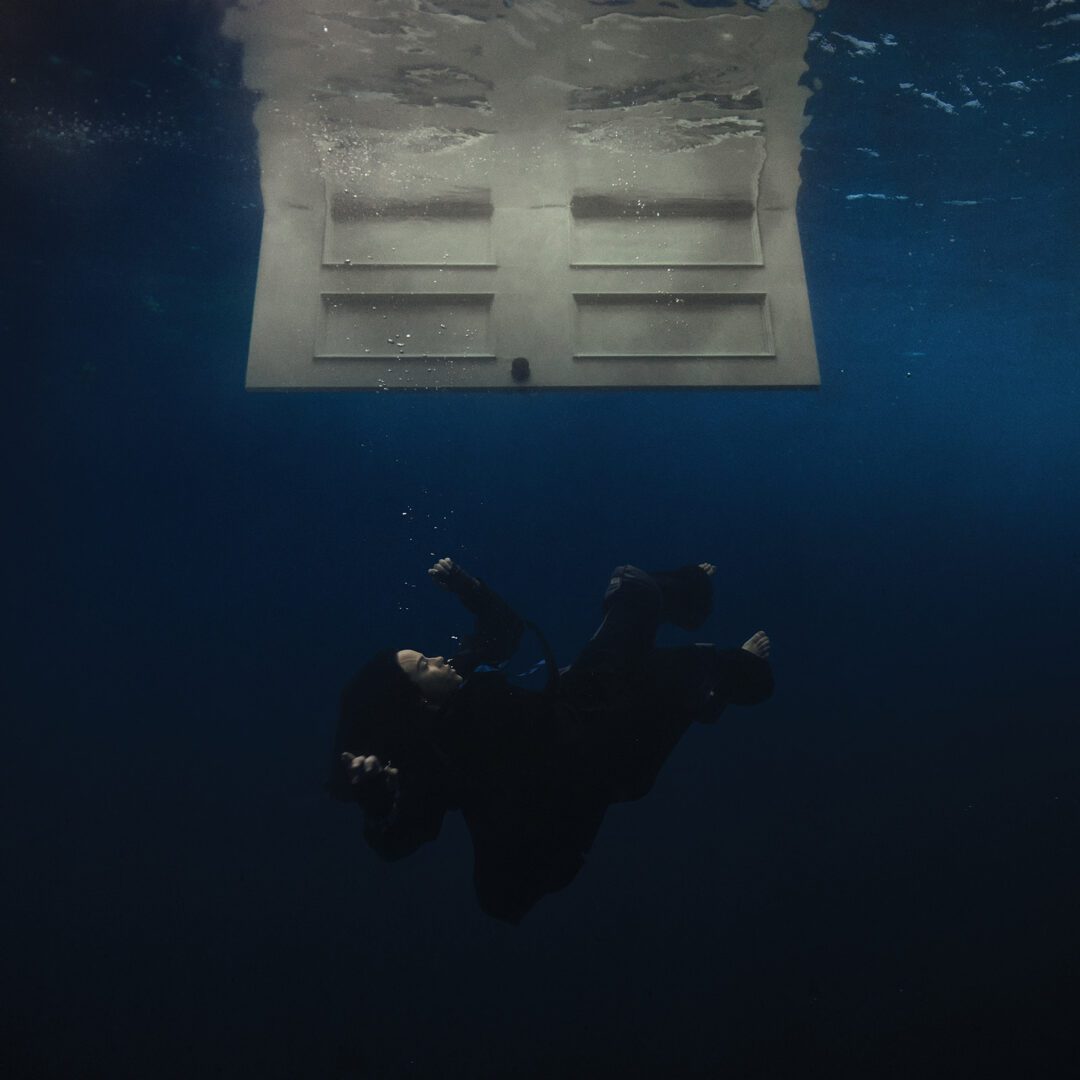
Billie Eilish – Hit Me Hard and Soft
Darkroom/Interscope
Billie Eilish is in a position like very few others. She’s one of the biggest pop stars in the world, with an upcoming arena tour that includes multiple nights in several major cities, and a new album that’s almost definitely going to debut at No. 1 in multiple countries, and she also continues to make music that’s far more experimental than most people would ever expect from a pop star of her stature. For her third album Hit Me Hard and Soft, she’s gone the no-pre-release-singles route, explicitly positioning Hit Me Hard and Soft as album-oriented art, and the album she’s crafted lives up to the promise that it’s best heard from start to finish. The closest thing it has to a stereotypically radio-friendly song is the ’80s pop-sounding “Birds of a Feather,” though the song that already feels like a hit is “Lunch,” which went viral just from a fan-shot clip of Billie debuting it at a party at Coachella and stirred up even more of a fan frenzy after Billie told Rolling Stone that writing the song helped her fully embrace her attraction to women. (Her words: “I realized I wanted my face in a vagina.”)
With its groovy bassline (and kinda-ska upstrokes), “Lunch” feels like this album’s “Bad Guy” or “Therefore I Am,” and Billie’s three for three on that exact kind of subtle banger. That is not to say that Hit Me Hard and Soft follows a formula though–far from it. Outside of “Bittersuite,” which sounds like a leftover from Happier Than Ever, every song on Hit Me Hard and Soft sounds distinctly like Billie Eilish without rehashing any of her old ideas, and it’s got a good amount of variety throughout its lean 10-song, 44-minute runtime. Her knack for intimate, somber folk music comes through on “Wildflower” and “The Greatest,” the latter of which builds to a suspenseful orchestral rock climax. She expertly transitions from jazz-pop to club beats and vocoder vocals on second-half standout “L’Amour De Ma Vie,” and the clubby vibes continue on “The Diner.” There’s the string-laden ballad “Skinny” that opens the album, and shapeshifting, harder-to-pin-down songs like “Chihiro” and album closer “Blue.” Like her past two albums, the album was made by Billie and her brother Finneas, who are as powerful together as any multi-membered pop songwriting team. As on “Lunch,” love and sex are prevailing themes throughout Hit Me Hard and Soft, along with a couple musings about all the public chatter she’s always dealing with (“Am I acting my age now?/Am I already on the way out?”), and Billie still knows how to write lines that jump out, grab you, and endure. [A.S.]
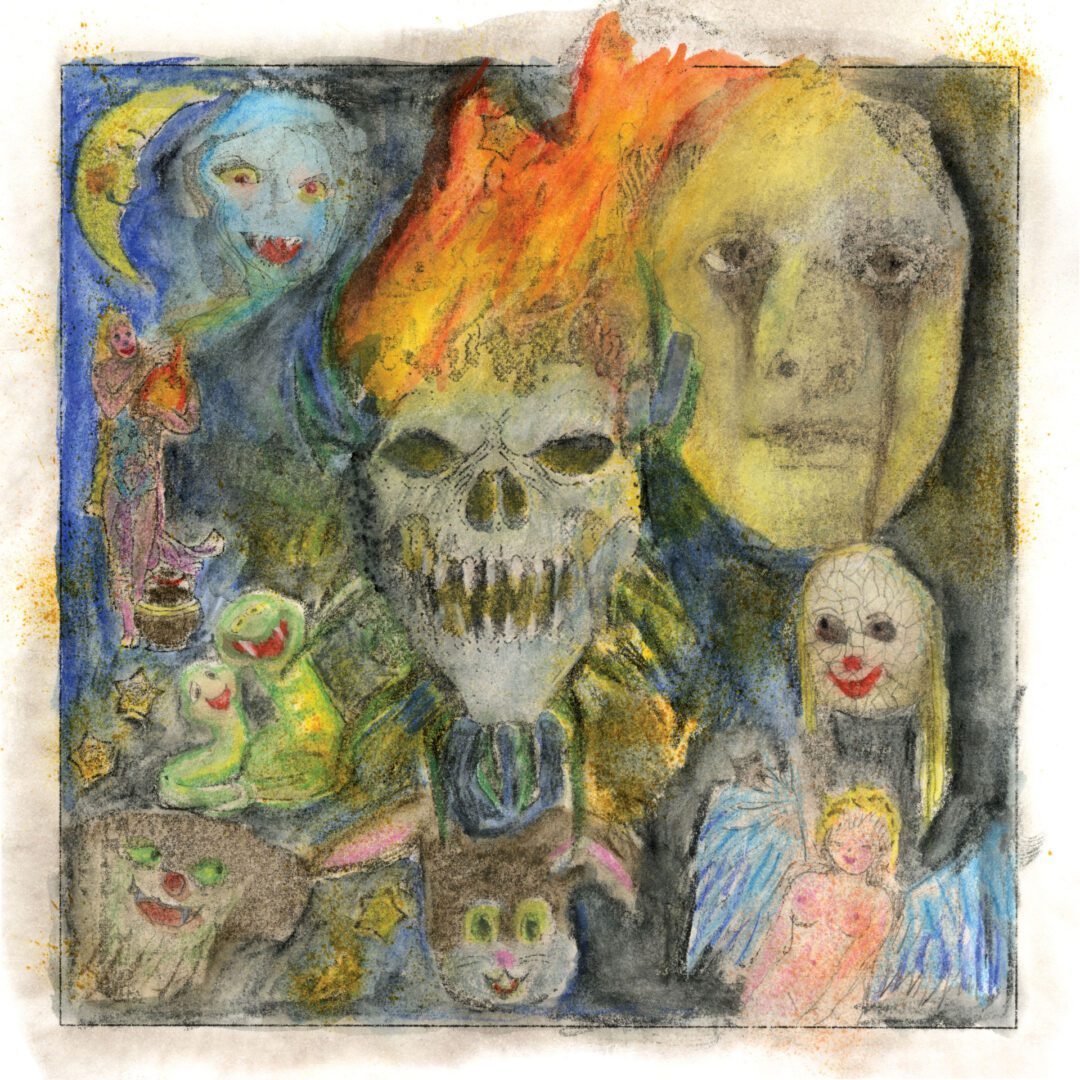
Candy – It’s Inside You
Relapse
Candy got a little industrial in their hardcore on 2022’s Heaven Is Here, but now they’re all in. Highlights of their new guest-filled album It’s Inside You include “You Will Never Get Me” (with Trapped Under Ice/Angel Du$t vocalist Justice Tripp), “Love Like Snow” (with Fleshwater vocalist MIRSY and LA electronic musician mmph), and perfectly named songs like “Dancing to the Infinite Beat” and “Hypercore,” all of which sound like they could’ve been minor hits during the ’90s industrial boom–especially the strangely infectious “Love Like Snow.” But Candy is still a hardcore band, and even on those songs (two of which get assists from Integrity’s Aaron Melnick and Trash Talk’s David Gagliardi), they sound like one. It’s Inside You makes more of a seamless evolution than a drastic pivot, and it’s got plenty of straight-up metallic hardcore mosh fuel to balance out the more electronics-assisted moments. I compared the genre-blurring on the last album to Full of Hell, but now Candy are starting to remind me more of Ceremony or the aforementioned Angel Du$t, bands with fearless ambition who will always be hardcore even when they’re navigating “non-hardcore” waters. [A.S.]

Charli XCX – Brat
Atlantic
After unabashedly touting her last album Crash as a sellout album, Charli XCX is getting weird again on Brat. But those descriptions are a little too reductive; Charli’s “pop” stuff has always been inventive, boundary-pushing, and ambitious, and her more experimental music has always been pop. That’s very much the case on Brat, which is brightly infectious enough to be on pop radio and also more mold-breaking than a lot of the music that is. It’s a musical melting pot of club beats, futuristic synths, off-kilter sound manipulation, bratty hooks, and a couple ambient indie ballads to break up the danceable maximalism. It’s an album that’s as well-suited for the cerebral art pop crowd as it is for the ravers, and it’s a reminder that those two crowds often exist in tandem. And above all that, it’s just fun, loud, addictive music that stands out from whatever pack you might think to group it with. [A.S.]
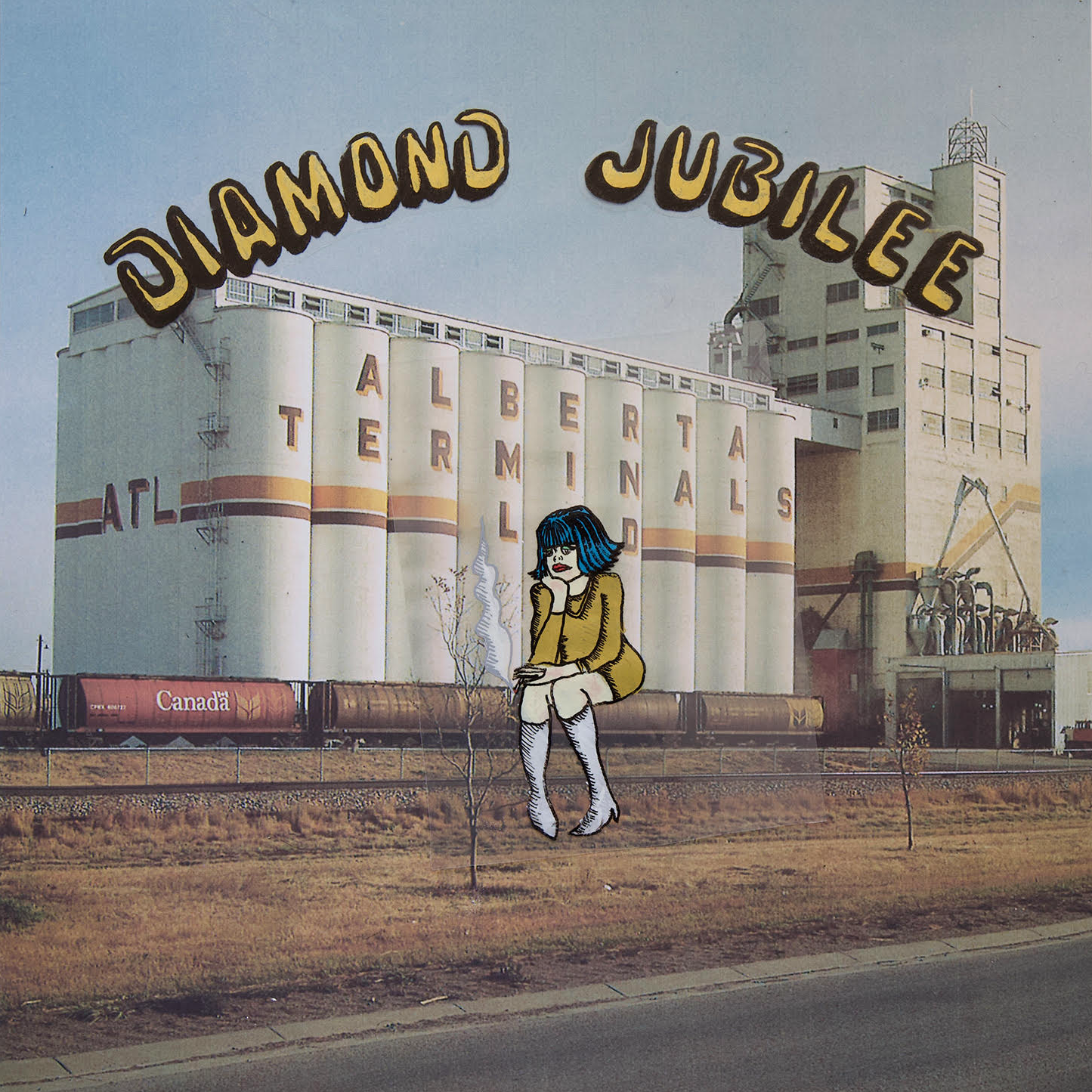
Cindy Lee – Diamond Jubilee
Realistik
Patrick Flegel hasn’t released a Cindy Lee album since 2020 (when they released three albums) but has clearly been busy. Diamond Jubilee is a two-hour and two-minute magnum opus that encompasses a wide variety of styles that showcase Flegel’s many talents as a songwriter, musician and producer. It’s a lot to take in. The album was originally announced as triple album Darling of the Diskoteque to be sold on tour, but then last weekend dropped as a pay-what-you-can download on Cindy Lee’s geocities site, renamed and resequenced as a theoretical double CD (wav files). I’m really only beginning to digest everything, but am also very wowed by it all. While still very much in the Cindy Lee lo-fi dreamworld of early-’60s pop, country and rock n’ roll, there are less weird-for-weird’s-sake sonic tapestries and instead a parade of memorable song after memorable song.
Lyrically these are mostly straightforward tales of longing, love and heartbreak — “Dreams of You,” “All I Want is You,” and “Always Dreaming” all come within a few tracks of each other on the first disc — which fit perfectly with Flegel’s love of Everly Brothers and Phil Spector productions. Though there are plenty of what I call “Lady in the Radiator” moments, Flegel is not singing all high falsetto this time, and the variety makes Diamond Jubilee a richer, more listenable experience and the daunting runtime sail by. It’s also the most guitar-oriented Cindy Lee album yet, and a real showcase for Flegel’s skills in that department; there are moments with gorgeous filigree throughout that are not that far from what you might hear on a Khruangbin album, just used to very different ends. Diamond Jubilee is a world that is easy to give yourself over to, despite length, and is peppered with amazing moments even very deep into its 32 songs, like the elegiac, stunning “What’s it Going to Take?” I have a feeling more sonic revelations will present themselves as this incredible record stays in my rotation throughout the foreseeable future. [B.P.]
[embedded content]
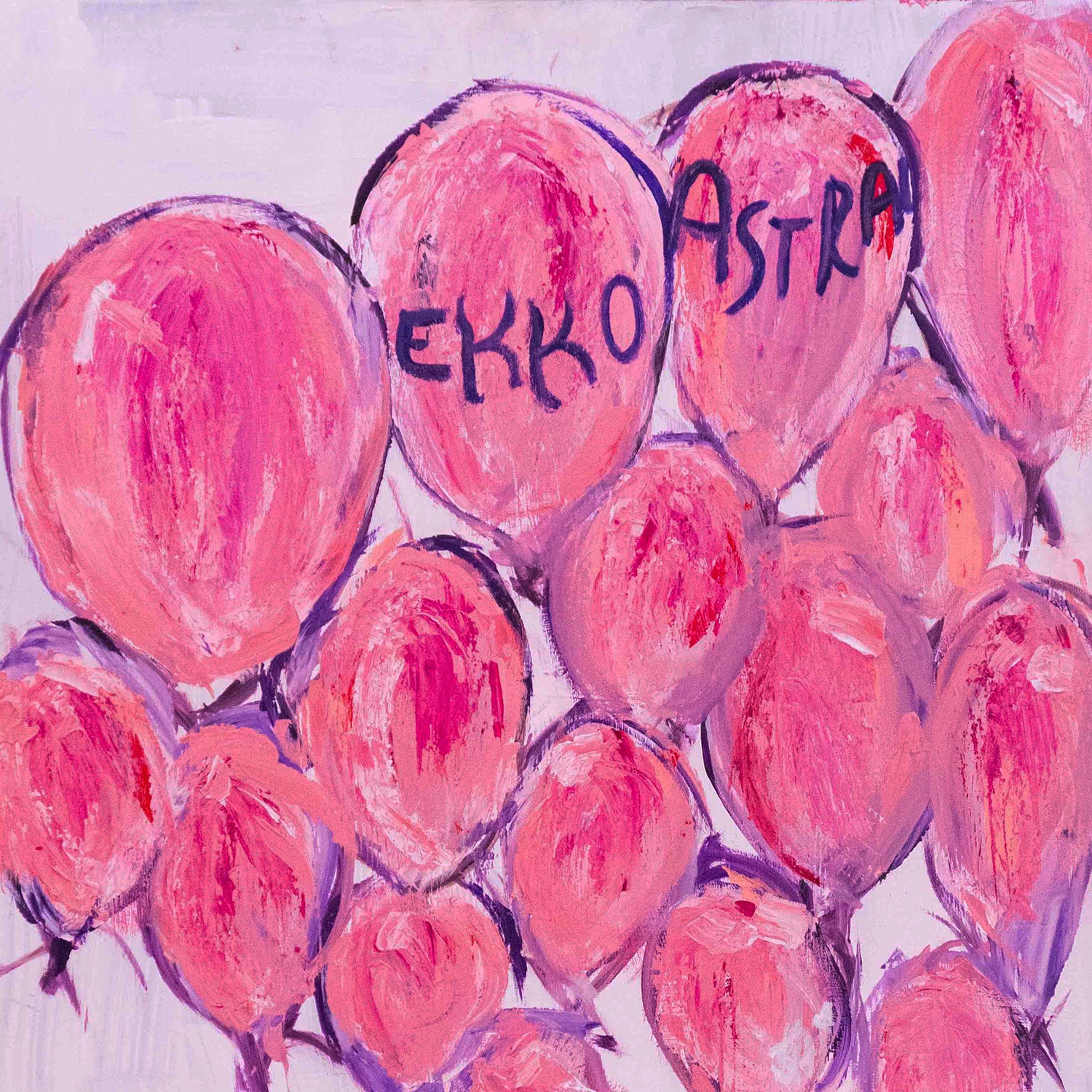
Ekko Astral – pink balloons
Topshelf
DC band Ekko Astral formed in 2020, put out their debut EP QUARTZ in 2022, and this week they released their debut album pink balloons via Topshelf. The album puts the “punk” in post-punk, it treasures noise as much as it treasures pop, it’s got an orchestral spoken word track called “somewhere at the bottom of the river between l’enfant and eastern market” (La Dispute reference confirmed), it dips its toes into twee pop (“make me young”), and it saves the most epic song for last: a nearly-nine-minute collaboration with Josaleigh Pollett called “i90” that clashes between post-rock build-ups and anthemic singalongs.
Thematically, pink balloons is an apocalypse party. It’s a record inspired by the myriad reasons that it feels like the world is ending, and Ekko Astral remember to have fun with it. Singer Jael Holzman’s lyrics can be scathing and blunt, or full of pop culture references to Bon Iver and Molly Shannon, or delivered in a witty, observational style that she says was largely inspired by Arctic Monkeys. Jael’s experiences as a trans woman are inextricable from her songwriting, but she told Stereogum that she’s wary of the ways people might pigeonhole Ekko Astral because of her queerness and identity. “A lot of people have typecasted us around my trans identity without really listening to the messages in pink ballons when we send it to them,” she said. “This is an album for everybody about universal struggles that should not be put into a box.” [A.S.]
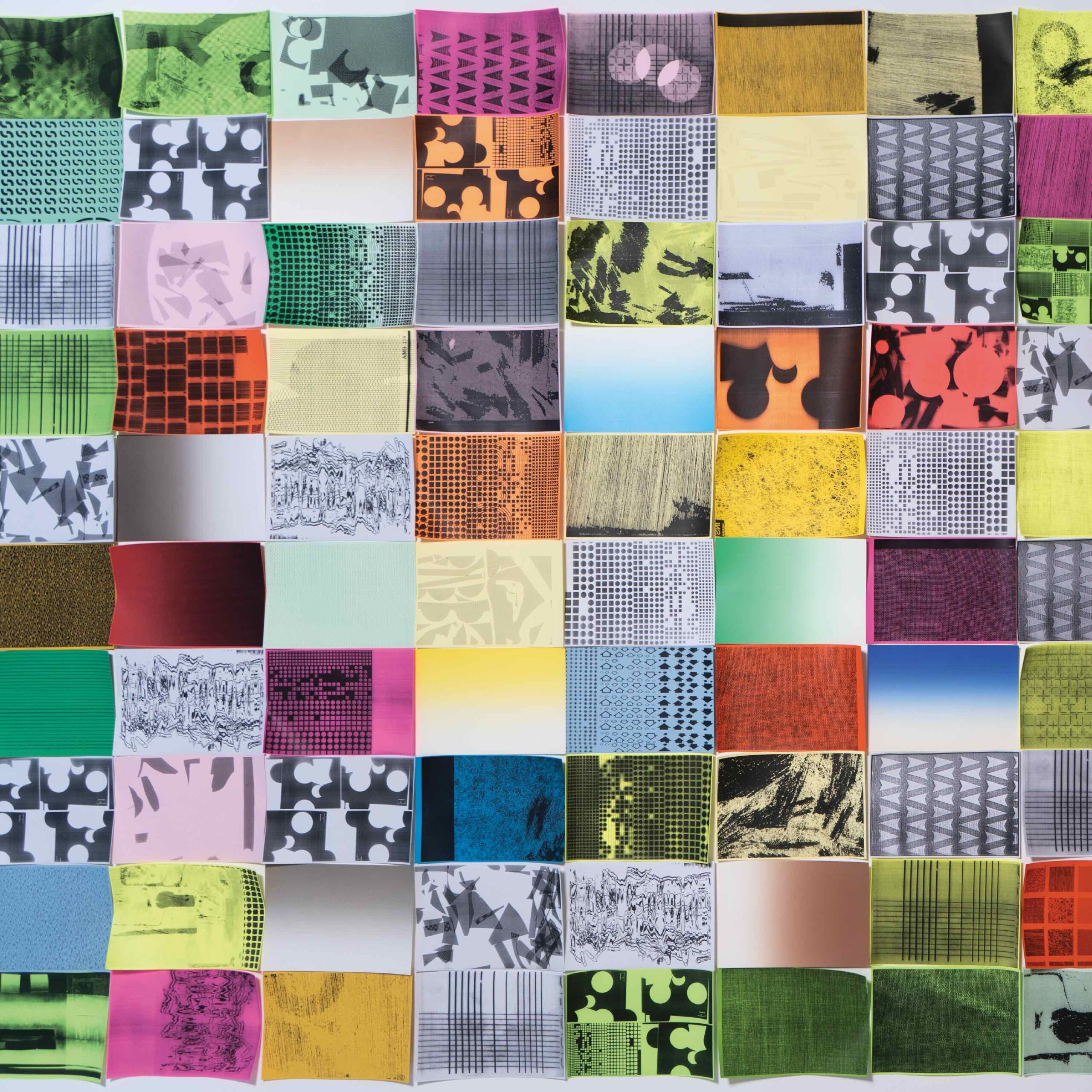
Four Tet – Three
Text Records
Kieran Hebden has been doing it so long and so well as Four Tet, having carved out a distinctive sound from the jump, that it’s easy to take him for granted. But what makes Four Tet records so consistently great is that whatever he does, whether it’s albums on his own or collaborations with Thom Yorke or Skrillex, everything seems to stem from personal curiosity. He makes music for himself and remains at the top of his game on Three, his 12th Four Tet album and first in four years. Hebden is still working with the same threads he always has — downtempo beats, jazz, folk, shoegaze, techno, house, dub — but the tapestries he weaves are always unique, beautiful and distinctly his own creations.
Three is a smorgasbord of what Four Tet does best, from downtempo mood pieces (“Loved,” “Storm Crystals”), to ethereal dance tracks (the techno-tinged, harp-laden “Daydream Repeat” and skipping “31 Bloom”), dalliances with dreampop (“Skater” owes a little to Cocteau Twins and The Durutti Column), and pure shimmering atmosphere (“Gliding Through Everything”). The album closes with “Three Drums,” Four Tet’s masterful single from last year that here ties the whole record together. Powered by a loping, 96 bpm beat, it’s an end-of-the-night send-off, eight minutes of bliss where majestic, airy synths crest, washing away the drums entirely, leaving a slow fade of warm ambience as the day breaks and you head home. [B.P.]
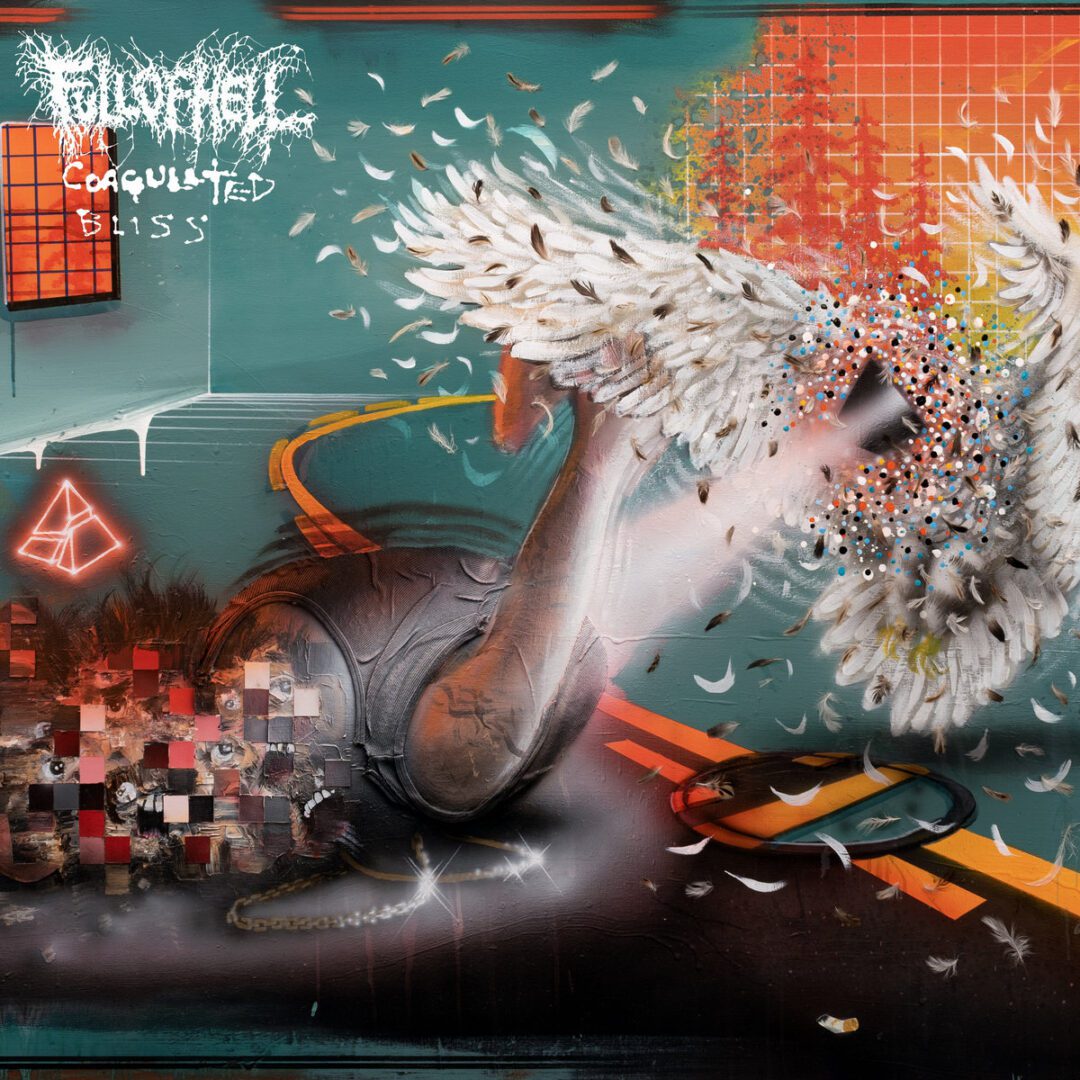
Full of Hell – Coagulated Bliss
Closed Casket Activities
Full of Hell’s new album follows collaborative LPs with Nothing and The Body, and guitarist Spencer Hazard has said that making those albums helped the band “[learn] how to find what actually services a song” and “recognize that there was value in pop music,” respectively. As a result, Coagulated Bliss, the first proper Full of Hell album since 2021’s Garden of Burning Apparitions, takes more cues from pop music and traditional songcraft than any Full of Hell album before it. Even the bright, colorful artwork suggests something more welcoming than the band’s usual black and white. It’s still Full of Hell though, so this is all relative. Coagulated Bliss is still informed by grindcore, powerviolence, death metal, sludge metal, noise, and other extreme forms of metal and punk, but presented in a way that goes down just a little smoother than usual, like a shot of 100 proof with a little something sweet thrown in. Like the last few Full of Hell albums, it’s a total sensory overload and it’s really in a lane of its own. There are other bands that are this heavy, this genre-agnostic, or this chaotic, but not many who do all of those things at once the way Full of Hell does. [A.S.]
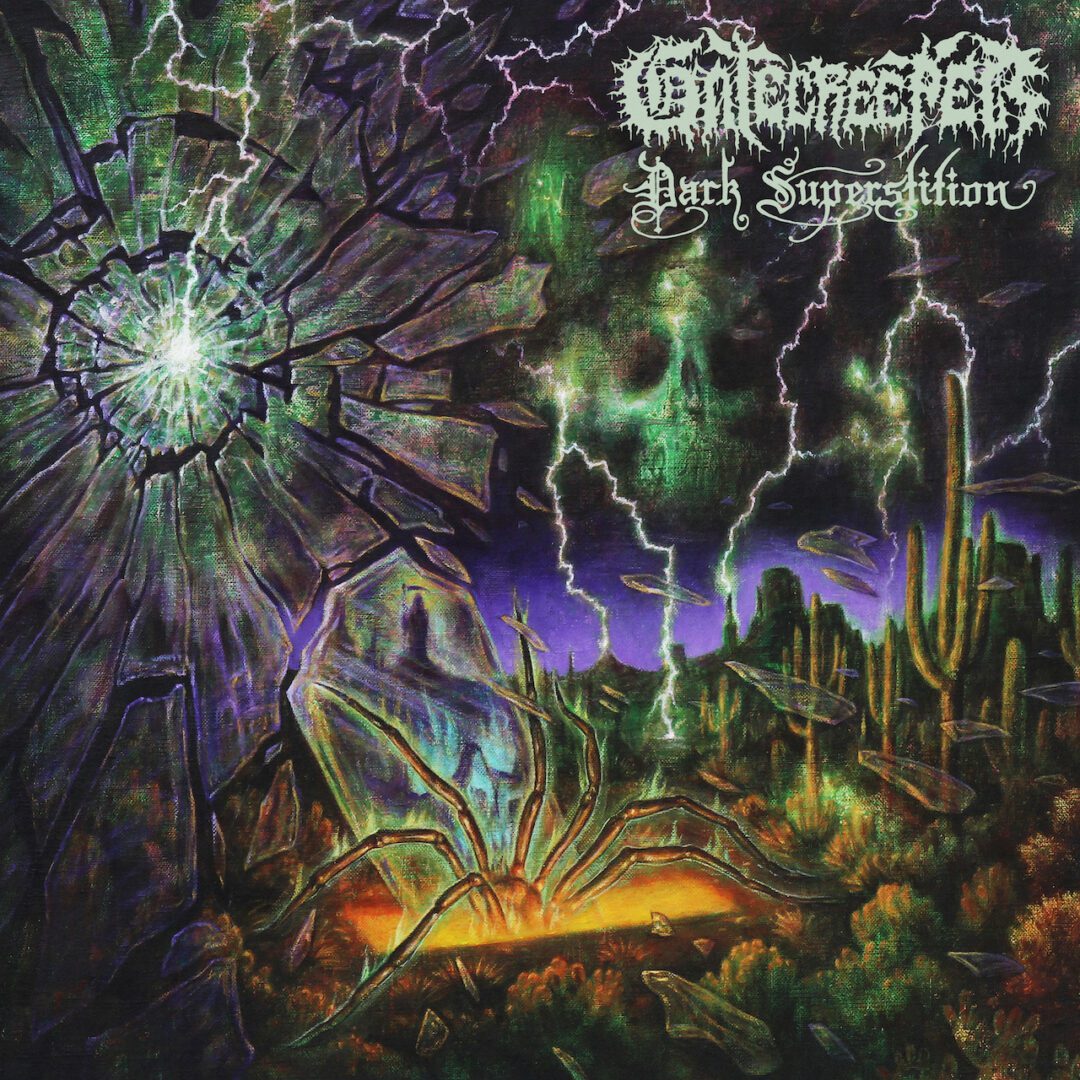
Gatecreeper – Dark Superstition
Nuclear Blast
Change was in the water on Gatecreeper’s 2021 project An Unexpected Reality, a My War-inspired record that explored the band’s short, fast, grindy side with seven songs on side A and their death-doom side with one 11-minute song on side B, but Gatecreeper considered that more of a detour and not the proper followup to the old school-style death metal of 2019’s Deserted. With Dark Superstition, Gatecreeper have released the album that fully begins a new chapter of their career. This is the first album with the band’s current lineup and band leader Chase Mason says it was the first time that Gatecreeper wrote an album collaboratively as an entire band, and they also made a clear break from “old school-style death metal.” The influence of Swedish melodic death metal has crept into their music before, but on Dark Superstition, it’s a driving force. They brought in an actual Swedish death metal veteran, Fred Estby of Dismember, for some assistance, and they’ve got an arsenal of melodic riffs that have been working perfectly on their ongoing tour with In Flames. (Frequent collaborator Kurt Ballou of Converge returned to engineer and mix.) But Dark Superstition isn’t just a jump from reviving one brand of death metal to another; it’s a seamless fusion of all of Gatecreeper’s influences with a whole lot of originality in the mix too. It’s a melodic death metal album that doesn’t sound like a stereotypical melodic death metal album, and it’s got some of the strongest and most memorable songs of Gatecreeper’s career. The bands of death metal’s latest wave can start to feel interchangeable as more and more emerge with similar takes on the same set of influences, but I can’t imagine listening to Dark Superstition and mistaking Gatecreeper for one of their peers. These songs really hook you and stand out in a way that this already-great band never has before. [A.S.]
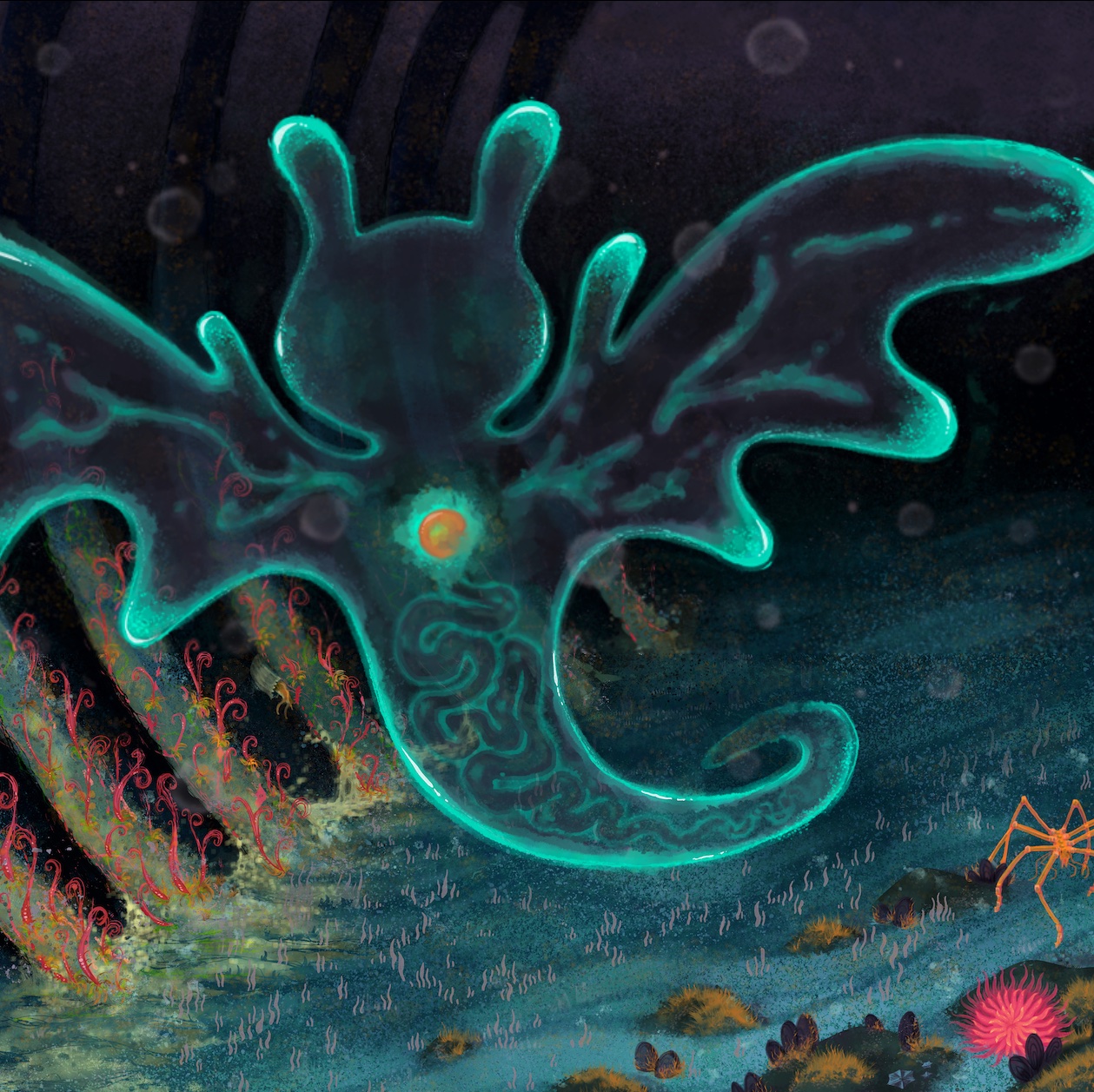
glass beach – plastic death
Run For Cover
Instant gratification is overrated, and I’d imagine the members of glass beach agree. Even with two great pre-release singles, there’s no easy entry point into plastic death, the band’s maximalist, immersive, hour-ish long sophomore album. At least in my experience, it takes multiple listens to even scratch the surface of what glass beach are doing throughout these 13 songs, and plastic death deserves the patience.
Since self-releasing their debut LP the first glass beach album nearly five years ago, glass beach stirred up word-of-mouth buzz, signed to Run For Cover, and continued to build more and more anticipation within certain underground music circles for this long-awaited followup. Those circles have generally been emo and emo-adjacent ones, but it would be really limiting to talk about glass beach only as an emo band. Like their 2021 tourmates Home Is Where, they sound more like 2000s-ish weirdo indie rock than most people’s definition of emo, but in a way where you can tell they probably listen to pageninetynine or something like that too–there are riffs and screams on this album that could only come from post-hardcore and screamo. So it’s not not emo, but plastic death makes me think of zany, overly ambitious mid 2000s bands like The Most Serene Republic more than anything else. Like that band and their peers, glass beach treat pop music and experimental music as equals, not opposing forces. It’s a thrill when such deeply disorienting music also sounds this beautiful. [A.S.]

Good Looks – Lived Here for a While
Keeled Scales
“I’m not totally sure what heartland rock is,” Tyler Jordan, who is singer, songwriter and guitarist for Austin’s Good Looks, told us, “and I’m not totally sure we’re a heartland rock band.” I’m not sure Good Looks are a heartland rock band either but there are definitely elements of that genre in what they do, including warm melodies, anthemic choruses, and down-to-earth, relatable, ripped-from-his-life lyrics. But give their terrific second album more than a cursory listen and the differences become apparent. For one thing, lead guitarist Jake Ames clearly has a fondness for atmospheric early-’80s post-punk that puts a unique sparkle on songs like “Broken Body” and “Day of Judgement,” taking them somewhere between Manchester, England and Manchester, TN. (I realize that drops a pin somewhere in Atlantic Ocean, but I’m talking the metaphorical sonic mid-point.) Along with Jordan’s uniformly great songs, those unexpected arrangement touches lift Lived Here for a While out of “truck/beer commercial music” territory and make the album more rewarding and replayable. (Also Jordan is an unabashed leftie with lyrics that would not work for selling Chevys.) That said, Good Looks have crafted an album full of sun-baked earworms (“If It’s Gone,” “Self-Destructor” especially) that are custom built for blasting out of car stereos while blazing down the highway with the windows open, or watching the sun set with a frosty cold one in hand. [B.P.]
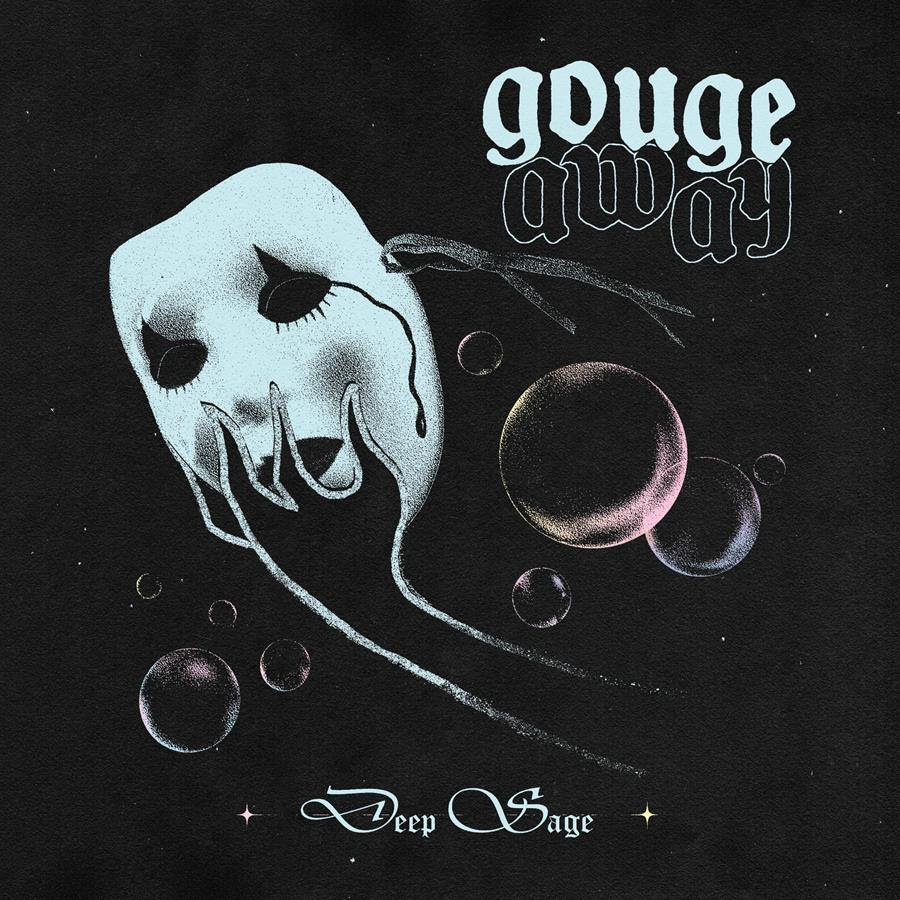
Gouge Away – Deep Sage
Deathwish Inc
Deep Sage is Gouge Away’s best album yet, and it almost didn’t happen. As they were demoing the followup to 2018’s Burnt Sugar, COVID lockdown hit and the band was forced into hiatus. The band wasn’t sure what would end up becoming of the material they’d been working on, but they finally regrouped and started writing again at the literal tail-end of 2021 (on New Year’s Eve), and then they made a surprise return to play two songs in the middle of a Militarie Gun set in Portland just over a year later. The energy from that show convinced them to finish the record, and now their masterful, wide-ranging third LP is here.
The 11 songs on Deep Sage seamlessly weave between abrasive hardcore rage, catchy anthemic choruses, indie rock melodicism, grungy dream pop, and the sprawl of post-hardcore and Sonic Youth-y noise rock, and every song sounds like a crucial part of one complete whole. The four pre-release singles successfully showed off the album’s range, but it’s less about the musical variety itself and more about the way everything comes together when you listen to Deep Sage in its entirety. It’s a journey through hardcore-informed, ambitious guitar rock that scratches so many different itches at once. The band’s knack for genre-defying experimentation was already clear on Burnt Sugar, but they really tie it all together on Deep Sage in a way they never have before. It’s an album to bounce around and shout along to as much as it’s an album to sit back and lose yourself in; an album with purely infectious moments as well as moments that might provoke or challenge. There’s darkness in both the music and Christina Michelle’s lyrics, and Gouge Away navigate darkness and contradictions and mood shifts in a way that’s an absolute joy to listen to. [A.S.]
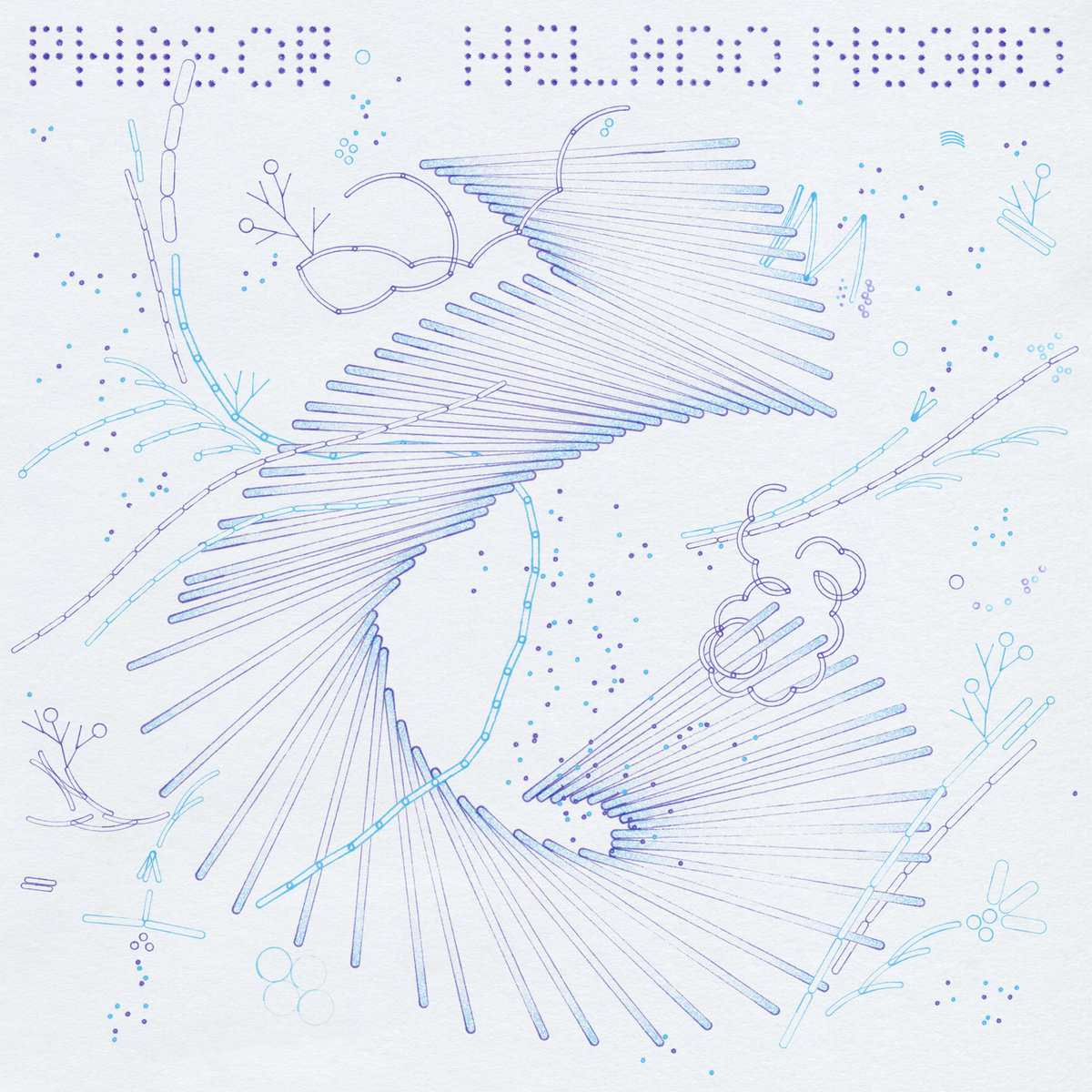
Helado Negro – PHASOR
4AD
Roberto Carlos Lang’s latest as Helado Negro was partially inspired by getting to visit Salvatore Matirano’s SAL-MAR synthesizer at the University of Illinois. “I was enthralled by it,” Lange says. “It’s like sailing; you set a destination but how you get there always changes.” This one of a kind “organic sound creation device,” as one of the synth’s caretakers puts it, is perfect for Helado Negro’s earthy, vibrant and highly empathetic universe. Underlining this, he also made it in his new home of Asheville, NC, a place known for rolling hills, abundant wildlife, and Moog synthesizers. PHASOR bubbles with life, nine gorgeous creations swimming in electronic primordial ooze but in a very organic way, floating alongside acoustic instruments and Lange’s warm, inviting, distinctive voice. It’s like a spaceship glimpsed from the forest floor, making diodes, patch-cords, and oscillators seem like wonders of nature. [B.P.]
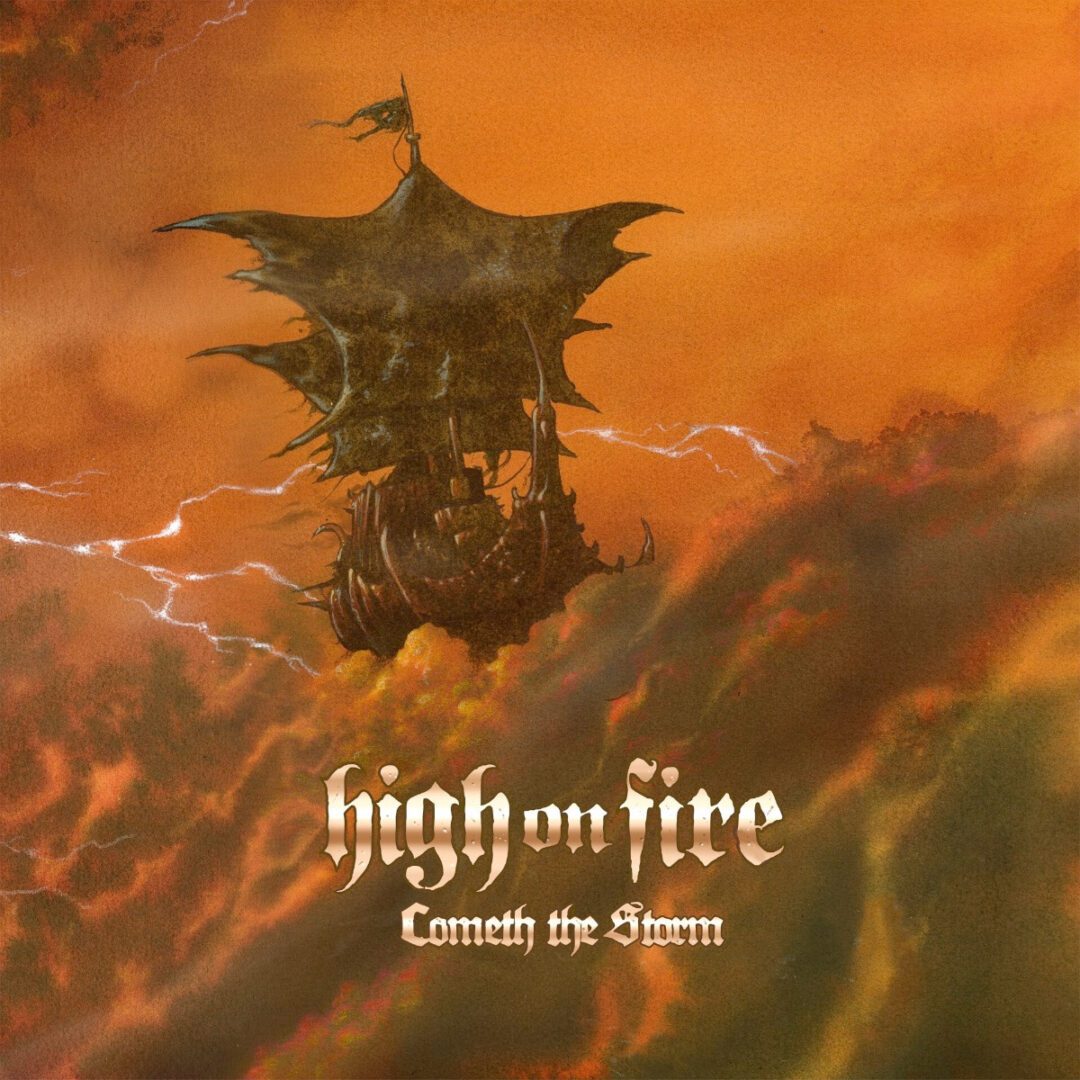
High On Fire – Cometh the Storm
MNRK Heavy
High On Fire are back with their first album in six years, first since bandleader Matt Pike’s debut solo album, and first with new drummer Coady Willis (Murder City Devils, Big Business, Melvins), and they sound totally re-energized. Matt Pike doesn’t stray far from his usual Motorhead-infused sludge formula, and he doesn’t need to; there’s both a satisfying familiarity and a fiery freshness to his monster riffs and throat-shredding roars. Coady not only fits right in, he meets Matt Pike and bassist Jeff Matz’s fuzzed-out riffage with pulverizing rhythms that put a new hop in HoF’s step. Jeff also learned to play the bağlama before the writing of this LP, and he helps bring a greater emphasis on Middle Eastern music which works perfectly with HoF’s psychedelic side, most notably on the album’s one instrumental track. It’s the band’s fourth consecutive album produced by Converge’s Kurt Ballou, who they’ve clearly developed a lot of chemistry with, and who really helps HoF open up their sound on this album, which sounds warmer and more spacious than the previous three. Don’t call it a comeback, though. High On Fire have been consistently great for nine albums and 25+ years straight, making it all the more miraculous that they’ve just added a record this crucial to their rock-solid catalog. [A.S.]
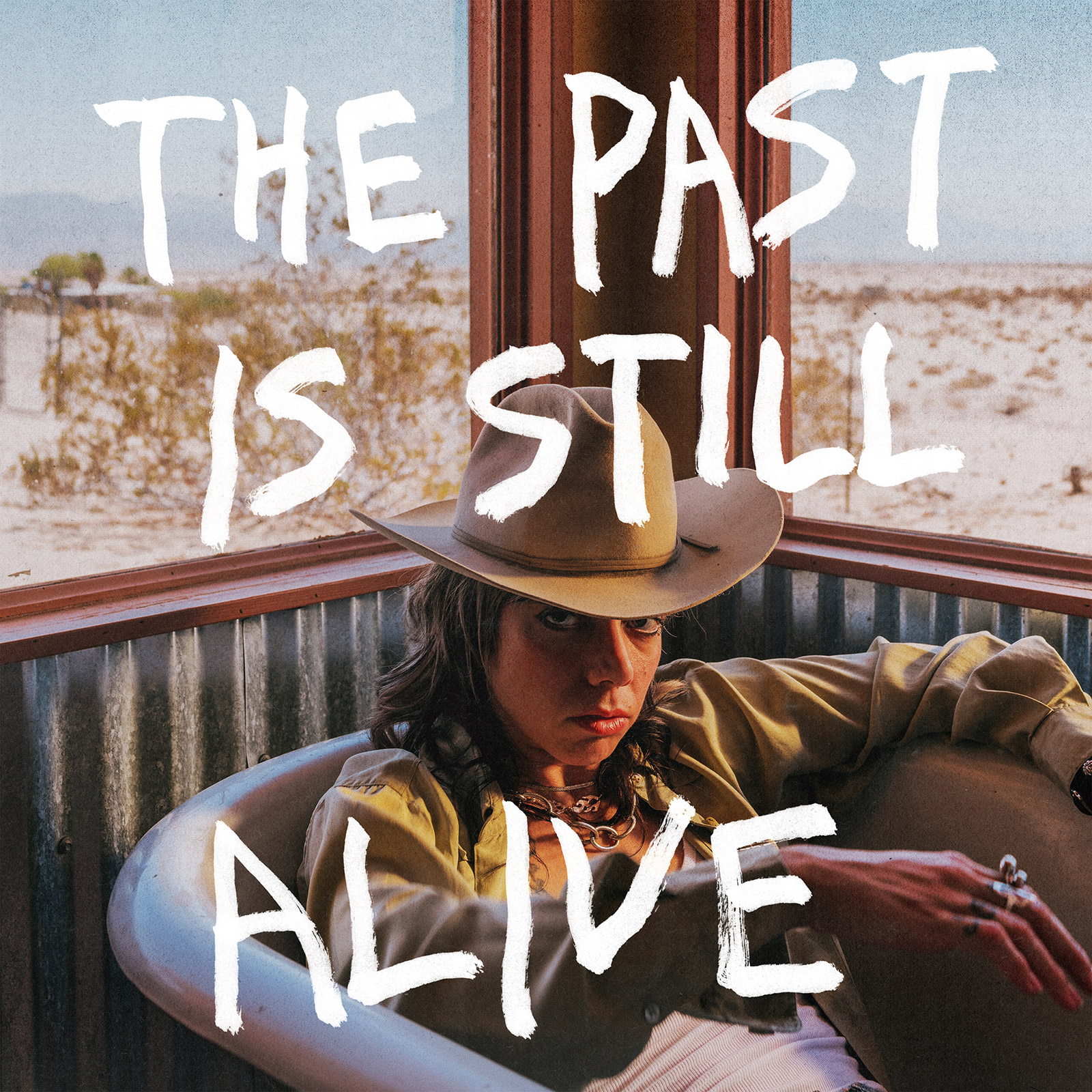
Hurray for the Riff Raff – The Past Is Still Alive
Nonesuch
Alynda Segarra has gone country, or more accurately, they’ve returned to it. Alynda’s earlier work as Hurray for the Riff Raff up through their 2014 breakthrough album Small Town Heroes was usually tagged as country or Americana, but they made some stylistic detours on 2017’s The Navigator and 2022’s Life On Earth. Alynda tells Lindsay Zoladz in a recent New York Times interview that they “felt unsafe being [themself] and being explicit in [their] ideas and beliefs” as a queer Puerto Rican person within Americana at that time, and often felt fetishized because of their identity. But Alynda adds that “Americana as a genre has grown a lot since then,” and the current country music climate does feel like a more open and inclusive one than that of a decade ago. At a time in which everyone from your favorite indie rock bands to Beyoncé are going country, it’s good timing for Hurray for the Riff Raff to return with an album that both embraces and challenges the form.
Their second consecutive album produced by Brad Cook (Waxahatchee, Bon Iver, etc), The Past Is Still Alive is fueled by rustic acoustics and pedal steel & fiddle-infused twang, and Alynda dons a cowboy hat on the cover, but this album is the opposite of blind patriotism. “Say goodbye to America/I wanna see it dissolve/I can be your poster boy for the great American fall,” they sing on “Colossus of Roads.” It’s an album that gestures at everything, from the fentanyl epidemic (“Snake Plant”) to violence against trans women (“Hawkmoon”) to open-ended yet firmly topical sentiments like “This year tried to kill us baby/Well good luck trying, you can’t catch me!” It might not be a fun time to be alive, but Alynda’s glad that they’re here to voice these things in songs at a time when that’s so necessary. “I used to think I was born into the wrong generation,” they sing on “Ogallala,” “But now I know I made it right on time to watch the world burn.”
Alynda works in plenty of personal stories with the big picture themes, and their melodies are almost surprisingly hook-oriented given how conversational and often-devastating their lyrics are. From the several hummable refrains to the showstopping Alynda Segarra/Conor Oberst harmonizing of “The World Is Dangerous,” The Past Is Still Alive contrasts the dark subject matter with warm, bright sounding songs. But even in its most pleasant moments, Alynda’s words jump out at you. If we’re going to watch the world burn, we may as well do it with this captivating soundtrack. [A.S.]

Jessica Pratt – Here in the Pitch
Mexican Summer
After releasing three somber, bare-bones folk albums, Jessica Pratt is widening her net. Her fourth album Here in the Pitch brings in baroque pop arrangements made up of mellotrons, timpani, horns, synthetic strings, and more, and a cast of musicians that includes Ryley Walker, Mauro Refosco, Spencer Zahn, and others alongside Jessica, her frequent producer Al Carlson, and her partner Matt McDermott. This year, she’ll go on her first full-band tour. Jessica’s far from the first artist to start out as a solo acoustic act and expand into something bigger, but the way she’s doing it on Here in the Pitch feels just as out of step with the modern world as her earlier releases were. She’s not making the pivot to indie rock or synthpop or sophisti-pop or any of the other usual folk-singer-to-[blank] pipelines we’ve seen over the years. Mentally, she’s still in the ’60s, with arrangements that take cues from things like The Beach Boys’ Pet Sounds and Scott Walker, and some bossa nova vibes that were at least partially inspired by a more cultishly-loved Beach Boys album, Friends. Her lyrics offer timeless musings on life and love, and some of her lyrical inspiration is as rooted in the ’60s as her sonics. She’s cited the Charles Manson story, the end of the hippie movement, and the lore of California as influences on Here in the Pitch, and a song like “By Hook or by Crook” feels like a period piece set at the end of 1969, like Jessica Pratt’s answer to Once Upon a Time in Hollywood. I don’t know if I’d necessarily call the album escapist art, but the whole thing feels like a break from the pace and the topical concerns of modern life. The multi-layered moments are balanced out by moments that are just as somber as Jessica’s earlier albums, and even the most maximalist songs are still quiet. Like every Jessica Pratt album before it, Here in the Pitch is a masterclass in the power of quietness. Even as she brings in more musicians and new instruments, Jessica remains remarkably committed to exploring the allure of this realm. [A.S.]
Read our cover story on Jessica Pratt for more.
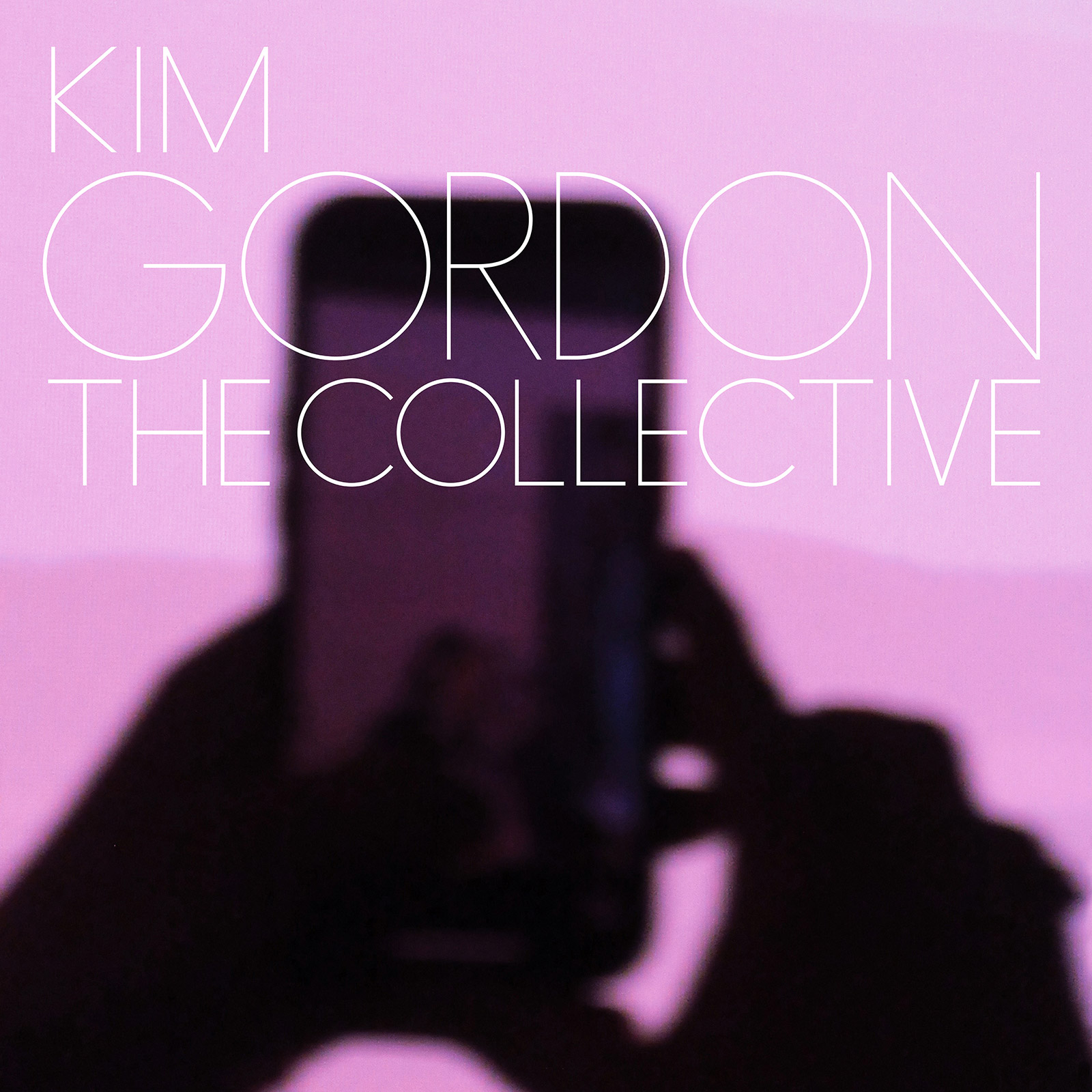
Kim Gordon – The Collective
Matador
34 years after Kim Gordon went head to head with Chuck D on Sonic Youth’s “Kool Thing,” she’s… kind of released her first rap record? That’s a little reductive, but the artist best known for guitar-fueled noise rock has leaned fully into trap beats and other hip hop-adjacent electronics, and there are times when Kim’s iconic spoken word delivery style veers closer than usual into rapping. It’s the most drastic sonic reinvention that Kim’s music has gone through in years, and it’s a thrilling development for an artist who’s always innovating and never playing by anyone else’s rules. It also totally works. It doesn’t sound like Kim Gordon is trying to make a Lil Yachty record to appeal to Gen Z; it sounds like a Kim Gordon record, with her trademark delivery and lyrical style fully intact, and a musical backdrop that pushes as many buttons in 2024 as Sonic Youth’s music pushed four decades earlier. [A.S.]
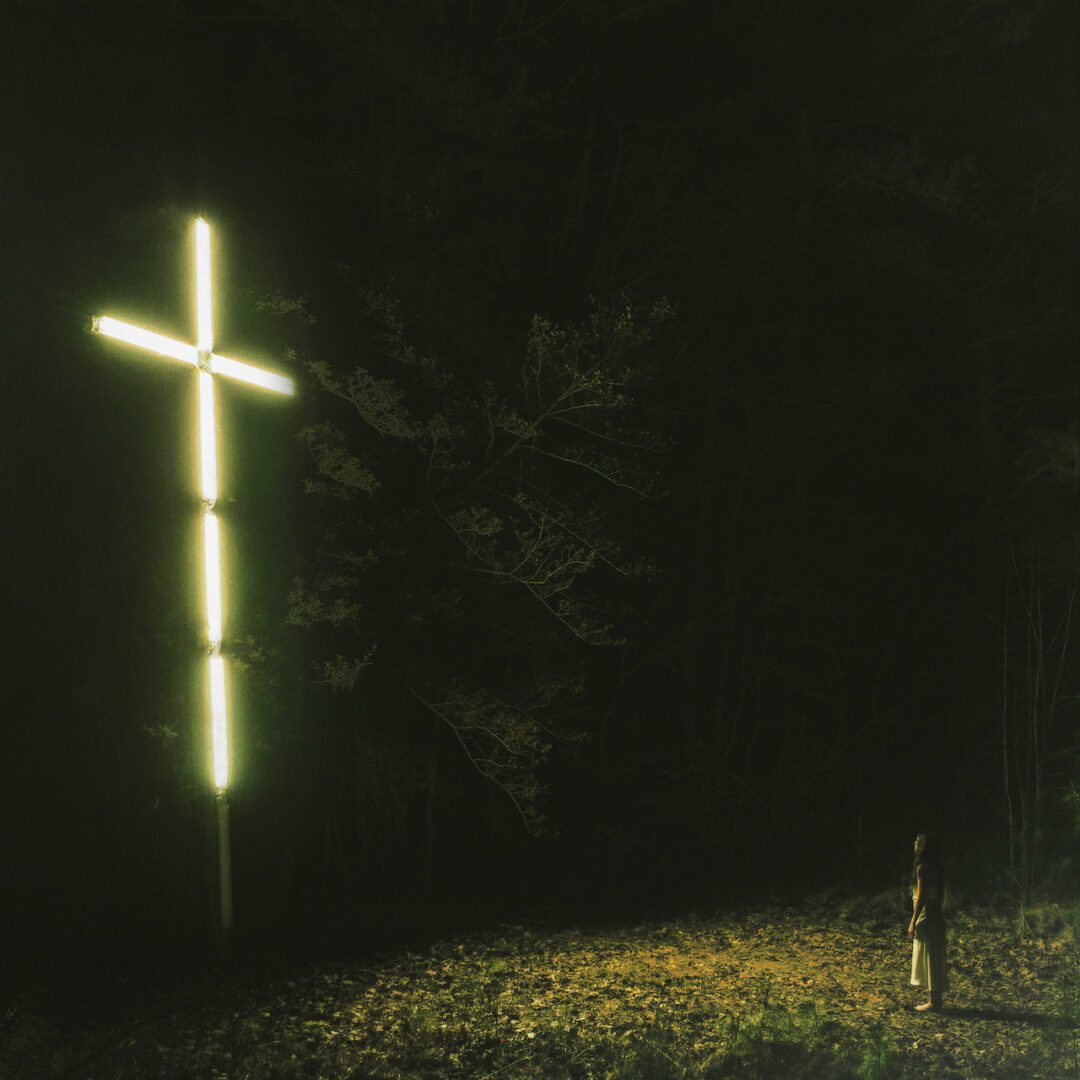
Knocked Loose – You Won’t Go Before You’re Supposed To
Pure Noise
You Won’t Go Before You’re Supposed To is only Knocked Loose’s third album in a 10+ year career, and it’s their first in five years (though it does also follow 2021’s A Tear in the Fabric of Life, a 21-minute EP that feels as monstrous as plenty of full-length albums), so I get the sense that Knocked Loose are the type of band who only want to drop an album if they know it’s a step forward, and You Won’t Go Before You’re Supposed To absolutely is. They made it with producer Drek Fulk, who works with massive heavy bands like Papa Roach, Disturbed, and (past Knocked Loose tourmates) Motionless In White and A Day To Remember, and the album also features two mainstream-metal-friendly guests: Poppy and Motionless In White’s Chris Motionless. Guitarist/backing vocalist Isaac Hale also promised when the album was announced that the album goes “the fastest we’ve ever gone” and “the scariest we’ve ever gone,” as well as “the catchiest and the most melodic that we’ve ever gone,” and vocalist Bryan Garris spoke in a recent interview with New Noise about Knocked Loose being “heavy music for normal people” and feeling that it was “very important for all of us to maintain accessibility.” So, with that producer, those guests, and promises of catchy melodies and accessibility, it might look on paper like Knocked Loose are finally making the radio-friendly jump that so many heavy bands have made before them, but that isn’t the case at all. Drew Fulk’s production has a definite shine to it, but in a way that somehow makes Knocked Loose sound even more abrasive, and the guest appearances from Poppy and Chris Motionless are just as brutal as Bryan’s shrieks and Isaac’s death growls. It’s not that the album goes from being catchy to being scary; it’s the catchiest Knocked Loose album and the scariest Knocked Loose album at the exact same time. They’ve funneled all of their brutality into the leanest, most concise songs they’ve ever written. It’s catchy just in how it’s structured, not because it has even a single clean, singalong chorus. “Heavy music for normal people” is a good way of putting it, and I’d also just add that it’s heavy music for everyone. You Won’t Go Before You’re Supposed To is the dose of brutality you need in your life, even if you’d never identify as a metalhead or a hardcore kid, and it’s also music for metalheads and hardcore kids. If you think you’re too evil or too punk for Knocked Loose, you’ve got it backwards. [A.S.]

Lip Critic – Hex Dealer
Partisan
The NYC music scene is never gonna be the same it was in the days of affordable dingy apartments and lofts, but whenever someone tries to declare its death, a new band or crop of bands comes along that gives the city new life. In the days since post-COVID concerts returned, there’s been some undeniable energy throughout the city’s local scene, and one band to thank for that is Lip Critic. The band formed just outside of the city in 2019 as students at SUNY Purchase and released an album and two EPs by 2021, and by the time shows started up again, they’d moved to the city and started making a ton of noise here. The reputation they gained as a live act helped ink the band a deal with Partisan Records (IDLES, PJ Harvey), and the energy from their shows also helped inspire the direction of their new album Hex Dealer. “We wanted to write songs that were more direct, yet more extreme and accelerated,” the band told us. “Like some sort of freak pop music you could mosh to.” The new album raises the bar for everything Lip Critic had been working towards, with a mix of industrial, hip hop, punk, hardcore, electronic music and more that’s as catchy as it is loud and abrasive. Alongside other post-COVID breakthrough acts like MSPAINT and fellow NYC band Model/Actriz, Lip Critic recall the early days of bands like Liars and LCD Soundsystem–days when you could’ve actually seen those bands in one of those affordable lofts–and they’d also fit nicely next to anything from Death Grips to Show Me The Body to the aforementioned IDLES (who they did recently open for). It’s music that works in so many different contexts, and it’s exciting to get a band that sounds simultaneously welcoming and antagonizing as effectively as Lip Critic does. [A.S.]
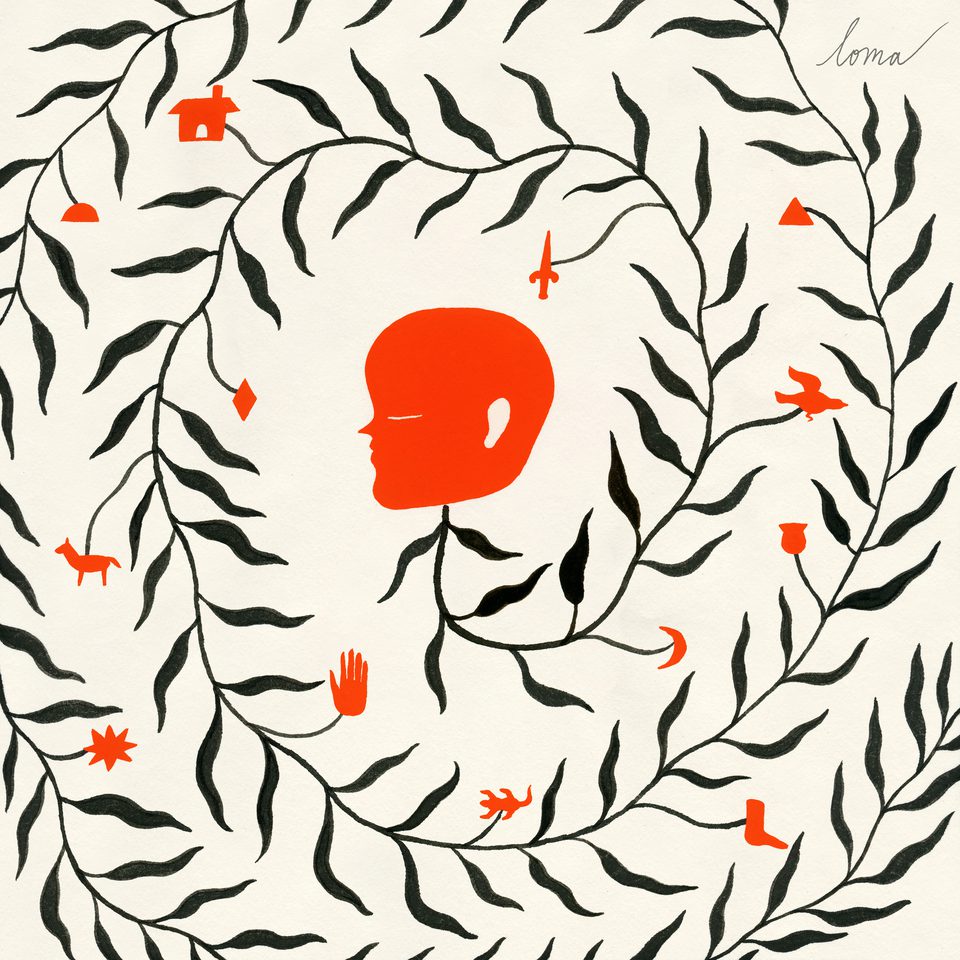
Loma – How Will I Live Without a Body?
Sub Pop
As Loma, Emily Cross, Dan Duszynski, and Jonathan Meiburg have always worked in watercolor, but How Will I Live Without a Body? is their most subtle, sublime album yet despite being the hardest for them to make. “Somehow, out of the chaos, we made something that sounds very relaxed,” Cross says. Relaxed, for sure, and at times bordering on ambient but also frequently thrilling, thanks to wonderful songs, expert performances, and arrangements / production that envelop you like a planetarium.* Is that a guitar solo? No that’s a clarinet (via Cross, who also plays viola on the album) and is typical of their sideways but perfectly realized sonic approach that favors atmosphere over flash. Tinkling piano, fluttering brass and woodwinds, brushed drums, simmering feedback and synths that lie just below the surface, those are Loma’s weapons of choice, all of which are used to lift Cross’ crystal clear voice that, even if the music had you drifting off, could jolt you awake with its beauty. Even her background vocals, like on “This is How it Starts,” send shivers. There are a number of standouts here — “Pink Sky,” “Affinity,” “Broken Doorbell,” “How it Starts” — but How Will I Live Without a Body? is a record you really need to devote some time to sit down with. “The quiet’s what he needs,” Cross sings on another of the album’s highlights, “A Steady Mind.” You might need the quiet too, even if you don’t know it yet. But Loma do. [B.P.]

Mach-Hommy – #RICHAXXHAITIAN
self-released
Mach-Hommy is insanely prolific, but he hasn’t released a proper solo album since 2021, a year in which he released two solo albums, Pray for Haiti on Griselda Records and the self-released Balens Cho (Hot Candles). That now changes with #RICHAXXHAITIAN, a self-released project that feels as subtly towering as you’d hope from Mach. In what’s become Mach-Hommy’s trademark fashion, the album is rooted in both Mach’s Newark, NJ upbringing and his Haitian heritage, and it includes Vailsburg slang, Haitian Kreyol, and French lullabies worked into Mach’s uniquely fresh version of East Coast rap. Mach brings in likeminded rappers like Black Thought, Roc Marciano, Your Old Droog, and his very frequent collaborator Tha God Fahim, all of whom have the same hard-hitting dedication to boom bap-era bars that he does, and he also successfully steps outside of that zone, like on the electronics-fueled title track with 03 Greedo and Kaytranada. [A.S.]

Mannequin Pussy – I Got Heaven
Epitaph
As the opening track, title track, and lead single of their fourth album, there was no better way to introduce this new era of Mannequin Pussy than “I Got Heaven.” It’s a punk rock battle march that finds Marisa Dabice shouting her way through rage and desire, and it culminates in a shiny, glossy chorus that sounds like it would fit on a late ’90s Garbage record. Obviously a song that wonders “what if Jesus himself ate my fucking snatch?” is making a statement, and this song very much does. It sets the stage for the rest of the album, which ranges from dream pop to hardcore punk with moods and thoughts and feelings that have just as much variety as the music itself.
Marisa has said that, if 2019’s Patience is a breakup record, then I Got Heaven is a record inspired by living with your loneliness and solitude and really getting to know yourself, and all the ups and downs and indecisiveness and contradictions that come along with that. From a couplet like “I want to be a danger/I want to be adored” to the collage of music genres, I Got Heaven pulls you in multiple different directions at once. Thanks in part to new guitarist Maxine Steen (who also plays with Marisa in the side project Rosie Thorne), the album has a greater use of electronics and it finds Mannequin Pussy living out their pop music dreams in a way that they only hinted at in the past on sweetly melodic songs like “I Don’t Know You” and “Sometimes.” But it also has some of the most intense hardcore songs they’ve ever written, like “OK? OK! OK? OK!,” “Of Her,” and the especially groovy “Aching.” It’s a record that refuses to be pinned down or stereotyped, and it’s refreshing in a world that too often wants to fit things into neatly organized boxes. There’s really nothing neat or organized about Mannequin Pussy; they’re a mess, and messes are way more interesting. [A.S.]
For much more on this album, read our Mannequin Pussy cover story from the first issue of the new, free BrooklynVegan digital magazine.
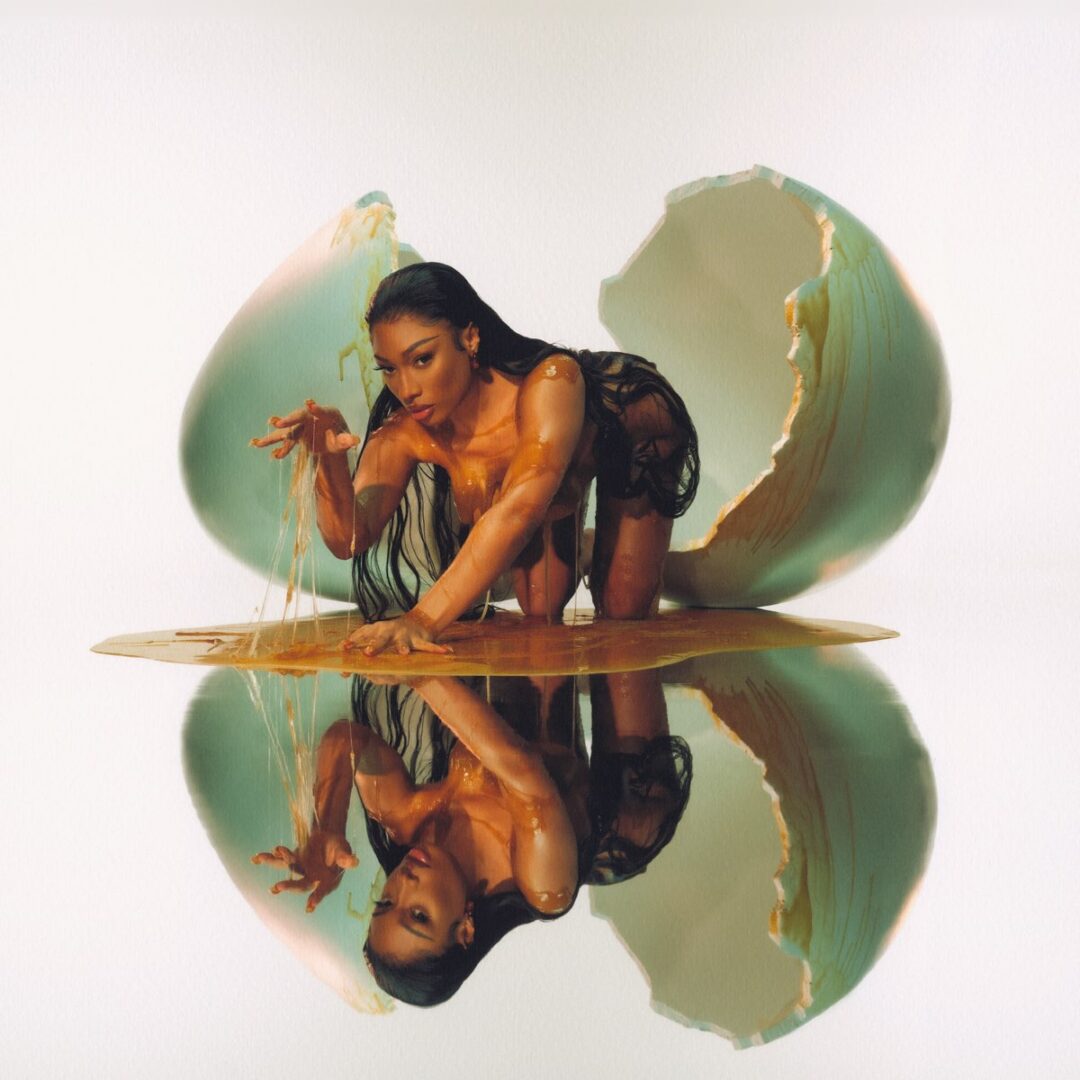
Megan Thee Stallion – Megan
Hot Girl
Megan Thee Stallion’s rise in popularity has long been accompanied by personal struggles, whether it’s the Tory Lanez assault trial (and other rappers accusing her of lying about the shooting) or her lawsuit against her record label 1501 Certified Entertainment, but she always seems to persevere. She finally freed herself from her label last year and launched her own company (called Hot Girl Productions, natch) earlier this year, and now she just released her Hot Girl debut, Megan. She acknowledges the public gossip that surrounds her more than once on the album, but for the most part, you get the sense that she finds living well is the best revenge. She sounds free on this album, and she’s rapping her ass off. It’s an onslaught of shit-talk and braggadocio raps, and it’s one of her most focused, cohesive albums yet. With 18 songs in 52 minutes, she’s not immune to the streaming-era trend of overloading albums, but the strong moments far outweigh any filler. Guest appearances come from recent collaborator/tourmate GloRilla, her home state Texas heroes UGK, Brooklyn drill rapper Kyle Richh, Japanese rapper Yuki Chiba, rising R&B star Victoria Monét, and fellow Southern rappers Big K.R.I.T. and Buddah Bless (appearing together on “Miami Blue”), and Megan benefits from their presences but never relies on them to draw people in or boost numbers, like she might have done with Beyoncé and Dua Lipa on past albums. The best, strongest, and fiercest parts of Megan are all handled by Megan herself. [A.S.]
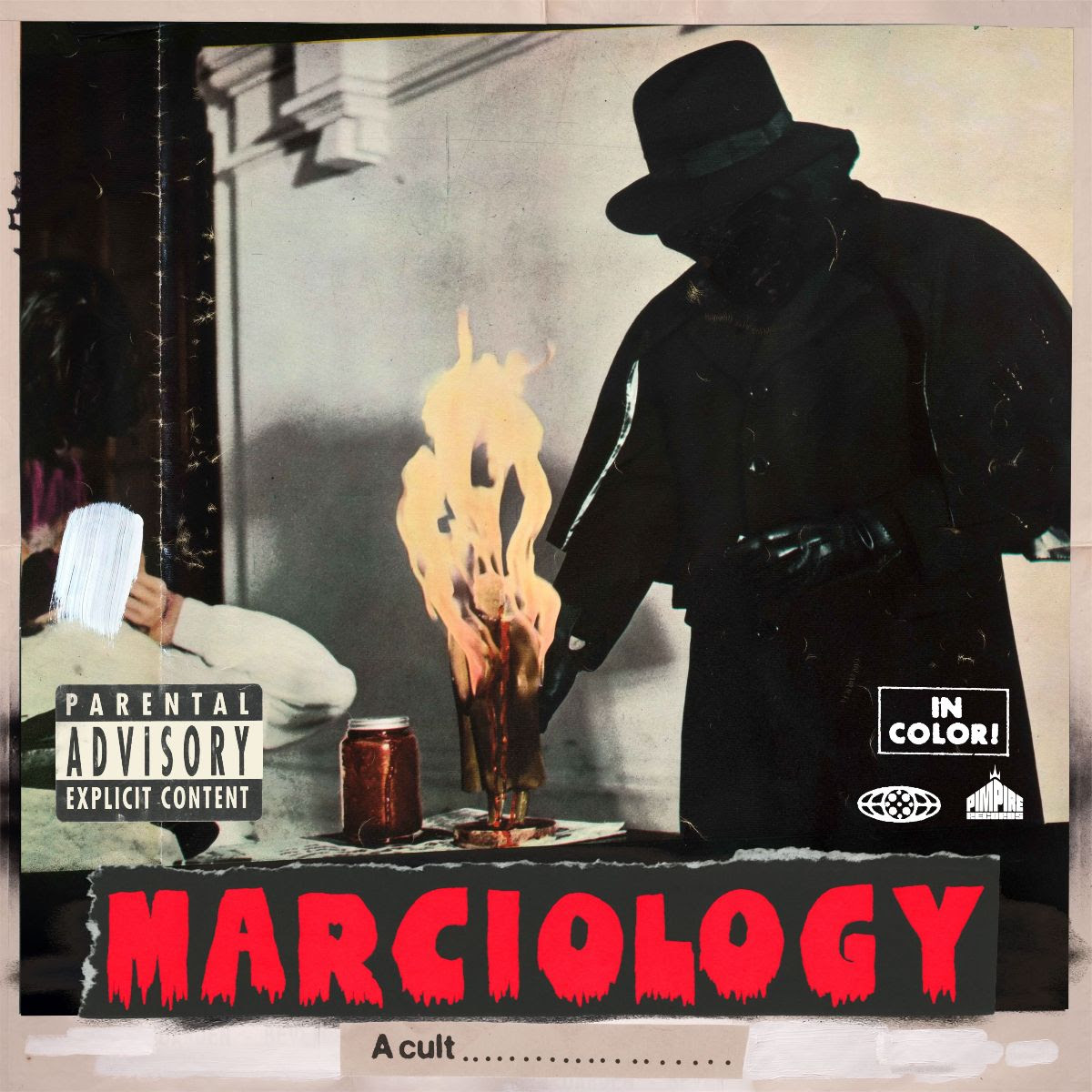
Roc Marciano – Marciology
Pimpire/Marci Enterprises
There’s something to be said for possessing the type of consistency that Roc Marciano does. You know a new Roc Marciano album is gonna mean a hefty helping of eerie boom bap production and sinister bars that sound straight out of mid ’90s New York City, but just because the style is predictable doesn’t mean the songs won’t surprise you. Over beats from Alchemist, Animoss, Roc Marciano himself, and more, Marci leaves you hanging on every word of Marciology, with punchlines that knock you out on first listen and continue to endure with repeated ones. He gets help from fellow ’90s devotees Flee Lord, Larry June, Jay Worthy, CRIMEAPPLE, Knowledge the Pirate, T.F., and GREA8GAWD, who all sound great here, and probably all of whom have Roc Marciano to thank for keeping this style of rap alive before its recent widespread revival kicked in. At this point, Roc Marciano is just about as much a veteran as Mobb Deep and Nas were when Roc was first starting to break through, and he still raps like he’s trying to win you over. He still makes every syllable count. [A.S.]

Rosali – Bite Down
Merge
Rosali Middleman’s 2021 album No Medium is one of those great albums that kinda crept up on us–it was more of a slow-burning rise than an Event Album–but she’s since signed to Merge, built up a lot of anticipation for new music, and her new album Bite Down does already kind of feel like an event. Rosali made it with the same band that she made No Medium with, David Nance and Mowed Sound (who also released their own new album last month), and though they didn’t know each other very well when they made No Medium, they’ve since become super close, and it sounds like Bite Down was more collaborative from the start than its predecessor. “When we went to make this record, I went in with the songs less developed than I normally would because I wanted it to be a band record,” Rosali told Steven Hyden.
Rosali and David Nance have a shared love of Neil Young, and Bite Down‘s mix of intimate folk music and electrified jams has already gotten its fair share of Crazy Horse comparisons, while Rosali’s warm, soaring voice has echoes of Fairport Convention’s Sandy Denny (and, on “My Kind,” sounds a little like Stevie Nicks). With comparisons like those, it probably comes as no surprise that Bite Down sounds like something that could’ve come out circa 1967-1973, and it has the same transportive quality that the best folk rock albums from that era did. It doesn’t take you back in time so much as it takes you to another world entirely. [A.S.]
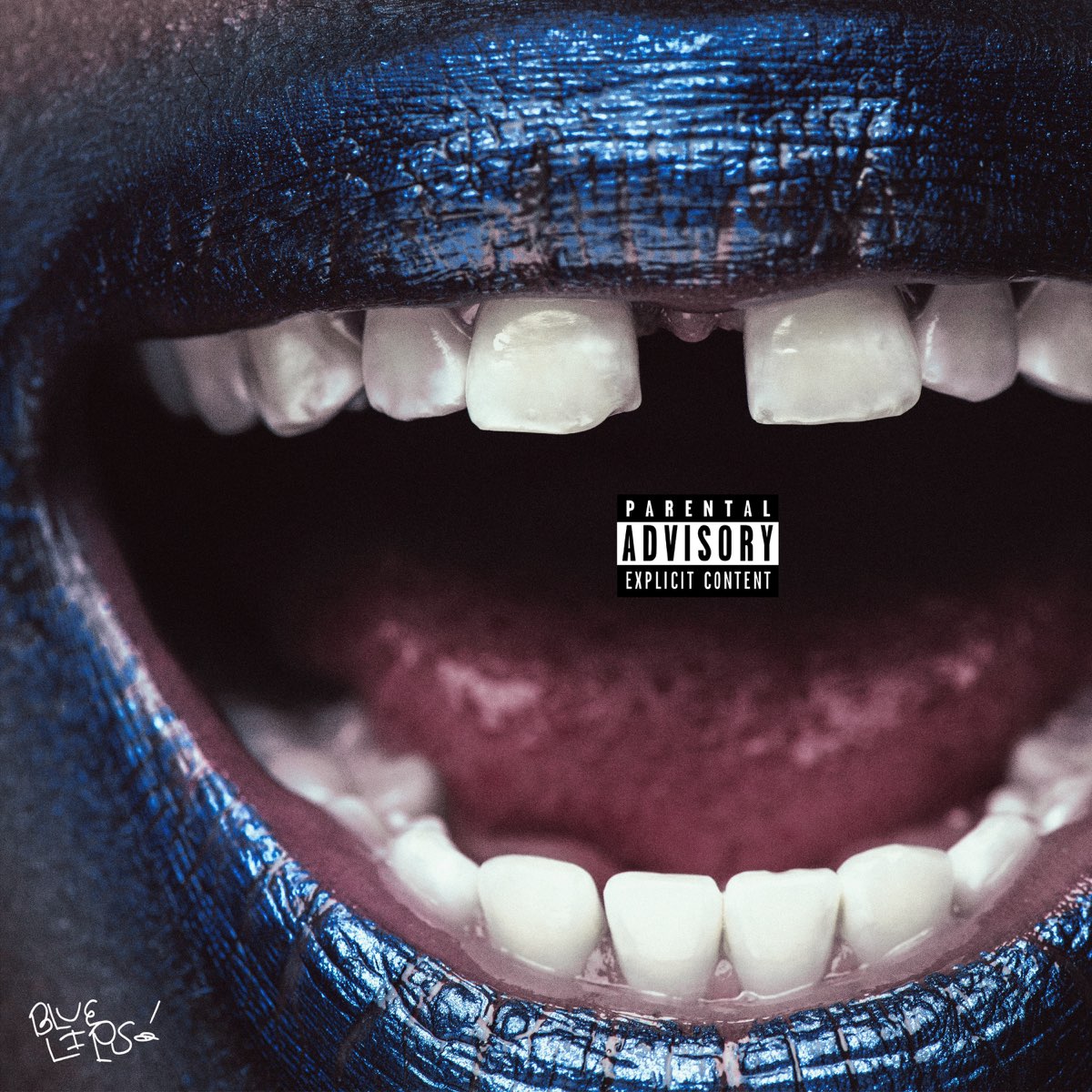
ScHoolboy Q – Blue Lips
TDE/Interscope
I like ScHoolboy Q’s 2019 album CrasH Talk, but it felt like he was coasting a little, playing it a little bit safe. It’s good news then, that its followup Blue Lips is one of the most delightfully weird albums that Q has released yet. Across 18 songs, Q covers everything from distorted punk-rap to industrial electronics to jazzy psychedelia to smooth soul to throwback boom bap to modern trap. He sounds totally re-energized, ready to yell about whatever on one song and tone things down and get pensive on the next. Freddie Gibbs, Rico Nasty, and longtime Black Hippy compatriot Ab-Soul are among the guests, and all three of them deliver standout verses. Q’s felt a little more elusive during the rollout for this album than he has in the past, and it makes sense. This one feels meant to get a little darker and weirder. [A.S.]

SeeYouSpaceCowboy – Coup De Grâce
Pure Noise
Coup De Grâce sounds like a version of the mid 2000s that never happened, one where just about every then-prevalent style of alternative rock exists in unison. Fueled by Ramen’s pop-emo theatrics? Check. Bloc Party/Yeah Yeah Yeah-style dance-punk? Also check. Underoath and Every Time I Die’s bone-crushing metalcore? It’s got that. Some Blood Brothers/Fear Before-style sassy hardcore? That’s here too. It’s no coincidence that Coup De Grâce was produced by Matt Squire, who most famously produced Panic! at the Disco’s world-conquering debut A Fever You Can’t Sweat Out, and SeeYouSpaceCowboy sound intent on winning over that band’s lovers and haters alike. They blend the fashionable with the unfashionable, the abrasive with the poppy, and they do it in a way that I don’t remember any actual mid 2000s band doing it. There’s plenty on Coup De Grâce for aging millennials to get nostalgic about, but mostly, this album pushes this music forward in a way that so many other Myspace-era revivalists do not. It’s a clear step up for SeeYouSpaceCowboy and I already feel confident calling it their best yet. [A.S.]
We’ve got an exclusive neon pink vinyl variant of the SYSC LP available in the BV shop.
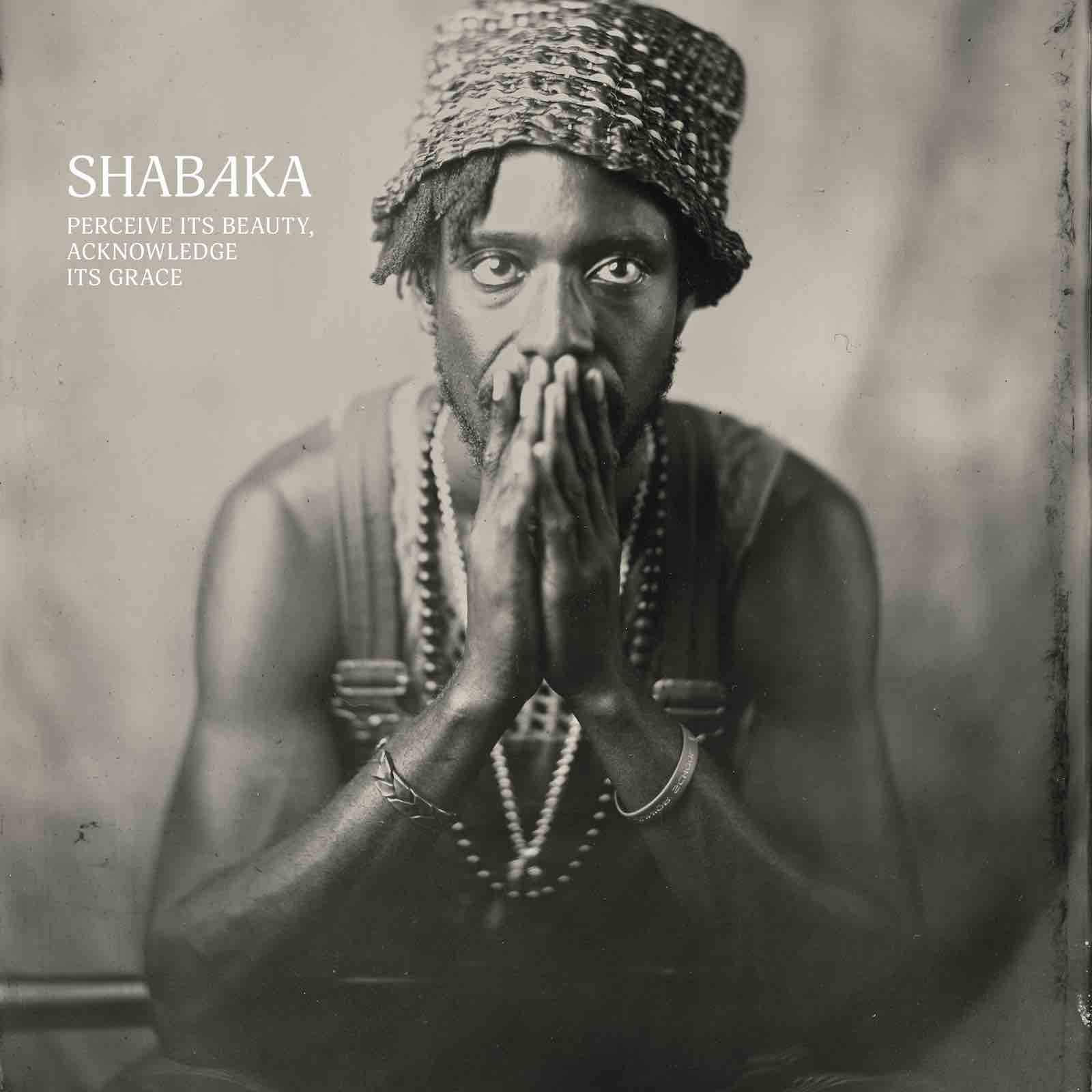
Shabaka – Perceive Its Beauty, Acknowledge Its Grace
Impulse!
With André 3000 bringing more widespread attention to flute-based ambient new age jazz music than there’s been in ages, hopefully his rising tide will help lift Shabaka Hutchings’ ship too. As a member of Sons of Kemet, Shabaka and the Ancestors, The Comet Is Coming, and more, Shabaka has been at the forefront of modern jazz for years, but he traded his usual saxophone for woodwinds on 2022’s gorgeously ambient Afrikan Culture EP, and he keeps those same vibes going on his first full-length as Shabaka, Perceive Its Beauty, Acknowledge Its Grace. Shabaka plays flute on almost every song, André 3000 contributes flute to “I’ll Do Whatever You Want,” and Carlos Niño–one of the core collaborators on André’s album–is the percussionist on most of this album too. Other marquee names include bass by Esperanza Spalding on multiple songs, Rhodes Chroma by jazz/electronic master Floating Points on “I’ll Do Whatever You Want,” and harp by Brandee Younger, strings by Miguel Atwood-Ferguson, and the blissful ambience is broken up by some guest vocalists, including Moses Sumney on “Insecurities,” Saul Williams on “Managing My Breath, What Fear Had Become,” Laraaji on “I’ll Do Whatever You Want,” Eska on “Living,” Lianne La Havas on “Kiss Me Before I Forget,” Anum Iyapo on “Song of the Motherland,” and an especially show-stealing performance by ELUCID of Armand Hammer on the 7+ minute ambient jazz-rap centerpiece “Body To Inhabit.” It’s a guest-filled, ambitious project, but also calming and minimal. It feels almost like the polar opposite of his past projects, and Shabaka grabs and holds your attention just as much in this setting as he does in more maximal ones. [A.S.]
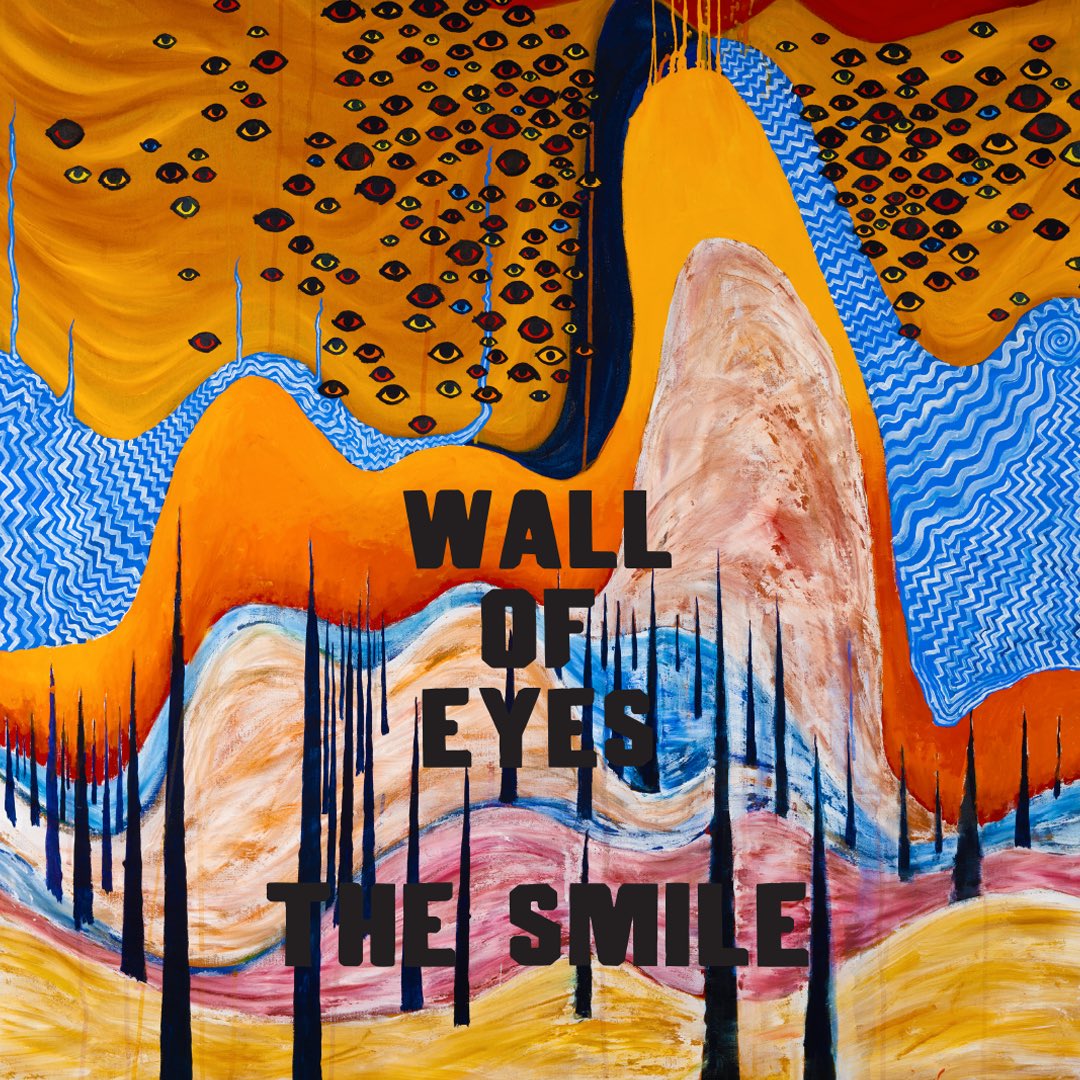
The Smile – Wall of Eyes
XL
Less than two years after Thom Yorke and Jonny Greenwood’s band The Smile released their excellent debut album A Light for Attracting Attention, they’re already back with another one–it’s the first time that the two of them together have released albums in such close succession since Radiohead in the early 2000s. I wasn’t alone in wondering why A Light for Attracting Attention wasn’t just a Radiohead album–it sounded strong and adventurous and Radiohead-like enough to be one–but I think I know why Wall of Eyes isn’t. This one feels a lot more like a side project, and that’s not a negative thing. It was produced by Sam Petts-Davies, who also worked with Thom Yorke on his Suspiria soundtrack and his songs for Peaky Blinders, rather than Radiohead producer Nigel Godrich, who helmed A Light for Attracting Attention, and it feels more improvisational, more focused on the journey than the destination. And it’s a treat to hear music that doesn’t sound so obsessed over from people who just exude talent like Thom Yorke and Jonny Greenwood.
The songs on Wall of Eyes are still proper songs, they still have grand string arrangements by the London Contemporary Orchestra, but Thom, Jonny, and drummer Tom Skinner (ex-Sons of Kemet) often sound more like they’re jamming than writing tight little nuggets like “You Will Never Work In Television Again”–most of these tracks hover around the five or six minute mark. They also sound like they’re having fun with some new ideas that may not have made the cut on a Radiohead album. “Read the Room” sounds like The Smile’s take on woozy, whimsical, ’60s psych-pop, and the eight-minute “Bending Hectic” builds to a ten-ton sludge metal coda. Those are the moments that sound the most freeing, and they’re also the moments that stick out the most. As much as the more moody, ethereal songs sound like Thom Yorke and Jonny Greenwood at their finest, it’s even more thrilling to hear the ways Wall of Eyes push them out of their usual comfort zones. [A.S.]
See also: Thom Yorke released an original score/soundtrack for Confidenza this year.

St. Vincent – All Born Screaming
Virgin Music Group
As St. Vincent, Annie Clark is frequently in character, but she’s also open and personal, sometimes more than we might realize. She’s already played out the scenario in her head where reviews and articles refer to All Born Screaming as her “most personal record.” “I mean, welllll yes,” she told DIY Mag, “but they were all so personal.” Still, with All Born Screaming, it feels like the mask is off. It’s the followup to her 2021 album Daddy’s Home, which pictured her in a blonde wig on the album cover and dove explicitly into ’70s pastiche. “With this record,” she said in that same interview, “I’m not that interested in dissecting persona or even really playing with it. This is the inside of my head so here you go: take it or don’t and either way is genuinely fine by me.”
Daddy’s Home was St. Vincent’s most polarizing record, and All Born Screaming sounds like it’s gonna rope back in some of the longtime fans who were turned off by its predecessor. It’s tempting to call it a “return to form” but I kinda hesitate to do that too… what form has St. Vincent ever taken besides a shapeshifting one? It feels authentic and true to the artist who began winning us all over 17 years ago on Marry Me. It’s rooted in some of Annie’s most formative influences, like Nine Inch Nails, Tori Amos, and Nirvana (who she eventually sang for), and it’s also fueled by a hunger to keep exploring. When she wanted that big Nirvana drum sound, she called up Dave Grohl himself. Trent Reznor isn’t on the album, but his spirit is there in the analog synths of a song like “Big Time Nothing.” Living up to its title and flame-engulfed album cover, All Born Screaming is some of the most abrasive music St. Vincent’s ever written, and it was born out of a desire to fuck things up the way her beloved ’90s forebears once did. “That’s what I want from music right now, personally,” she told Lindsay Zoladz in a recent New York Times feature. “I would like a pummeling. I want something to feel dangerous.”
Just as it’s not exactly right to call All Born Screaming St. Vincent’s most personal album, or a return to form, it’s not exactly right to call it an all-around abrasive album either. It’s so many things–art rock, art pop, industrial, balladry, funk, ska (the Specials-indebted “So Many Planets”), guitars, synths, and so much more, all done in a uniquely St. Vincent way. Dave Grohl is just one of three all-star drummers on the album–the other two are Josh Freese (currently of Foo Fighters, but also of countless other bands) and Stella Mogzawa of Warpaint–and the album also features Cate Le Bon, Justin Meldal-Johnsen, and more. Annie herself is the sole producer on this one–a first for her. In true St. Vincent fashion, it’s an album that’s weird, wild, complex, and unpredictable, but still concise and catchy. She’s called it “post-plague pop,” and it feels not just like an appropriate soundtrack for our uneasy times but a necessary one. What the world needs now is something to fuck shit up. [A.S.]
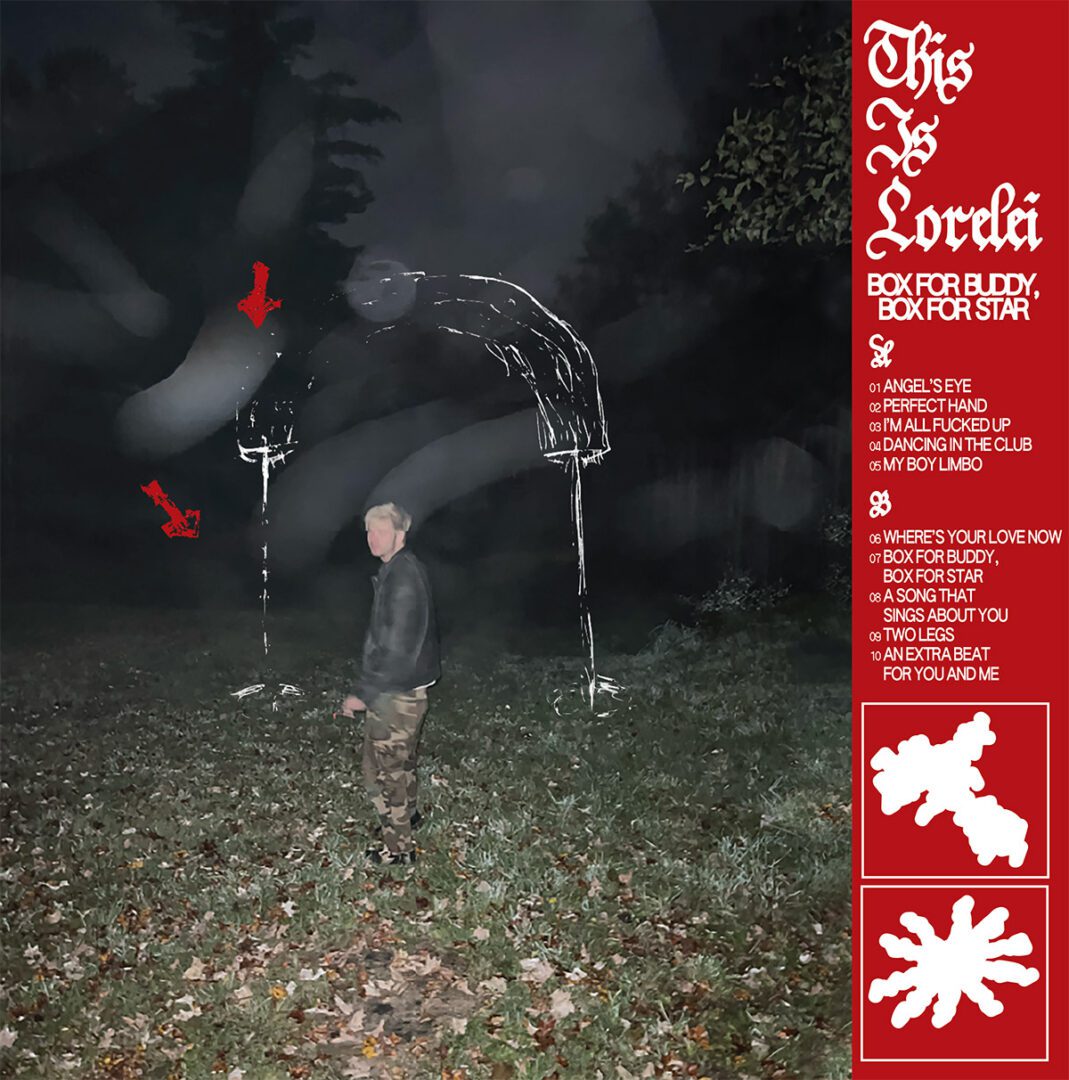
This Is Lorelei – Box For Buddy, Box For Star
Double Double Whammy
Nate Amos may currently be best known as one half of Water From Your Eyes, but he’s been releasing music as This Is Lorelei since even before that band formed and has tons of releases on Bandcamp. However, he hasn’t attempted to make a proper full-length This Is Lorelei album until now, with Box for Buddy, Box for Star. His solo work has veered in different sonic directions, and this time he’s fully in singer-songwriter mode, especially on “Two Legs,” which recalls Elliott Smith. There’s also a little of Neutral Milk Hotel’s urgent folk on “An Extra Beat for You and Me” and album centerpiece “Where’s Your Love Now,” with its repeating line of twinkly keys. “I’m All Fucked Up,” another highlight, is indie rock at its most satisfying, while “Perfect Hand” and “Dancing in the Club” bring in synths and drum machines. Nate’s songwriting is infectious and there’s a lot to chew on in his lyrics; Box for Buddy just gets better the more you hear and unravel it. [A.H.]
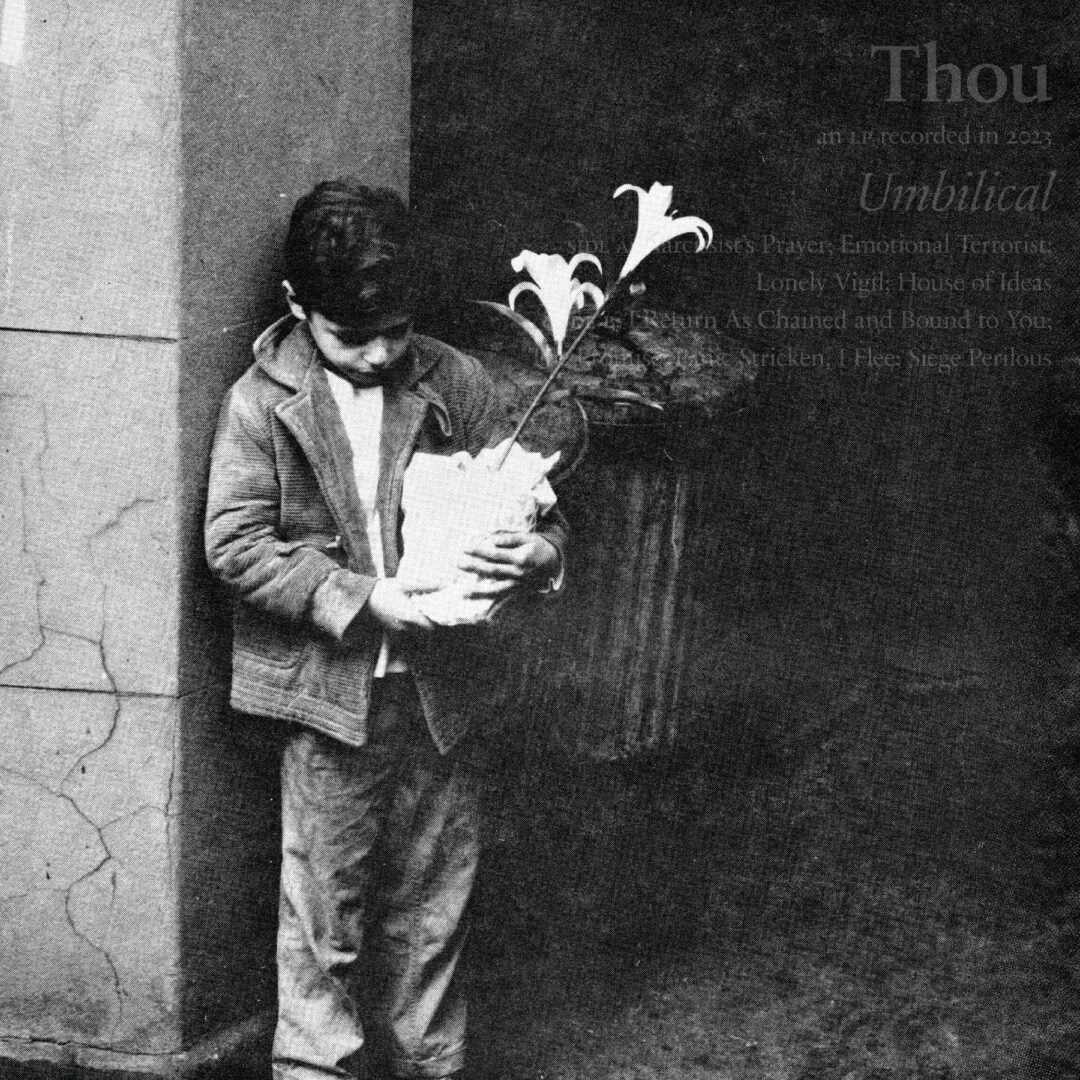
Thou – Umbilical
Sacred Bones
For close to 20 years, Thou have defied easy categorization, railed against conventions, and done the unexpected. Depending on the day, you can find them making full-blown collaborative albums or touring with metal bands, punk bands, singer/songwriters, and other likeminded weirdos that fall in between. They’re just as likely to cover melodic grunge songs by Alice In Chains or Soundgarden or release an entire album of Nirvana covers as they are to make something harsh and abrasive enough to scare off the ones who like all Kurt’s pretty songs. You can accurately call them a metal band but they operate more like a punk band, which puts them in a space shared by the likes of Converge and Napalm Death. And on Umbilical–the first proper Thou album since 2018’s remarkable Magus–they’ve made an album that will make longtime fans fall in love with them all over again, and probably rope in some new ones too. It’s an unrelenting offering of caustic sludge riffs, blackened shrieks, and an unsettling atmosphere that overwhelms the senses and stands out from just about everything else happening in heavy music right now. Like most great heavy music, it’s not for everyone, but it’s for anyone who needs it. As the band themselves say: “This record is for the radicals, the crackpots, the exiles who have escaped the wasteland of capitulation. This record is for the militants and zealots refusing to surrender to comforts, to practicalities, to thirty pieces of silver. And this record is most especially for the weaklings and malingerers, burdened by capricious indulgence, hunched by the deep wounds of compromise, shuffling in limp approximation, desperately reaching back towards integrity and conviction.” [A.S.]
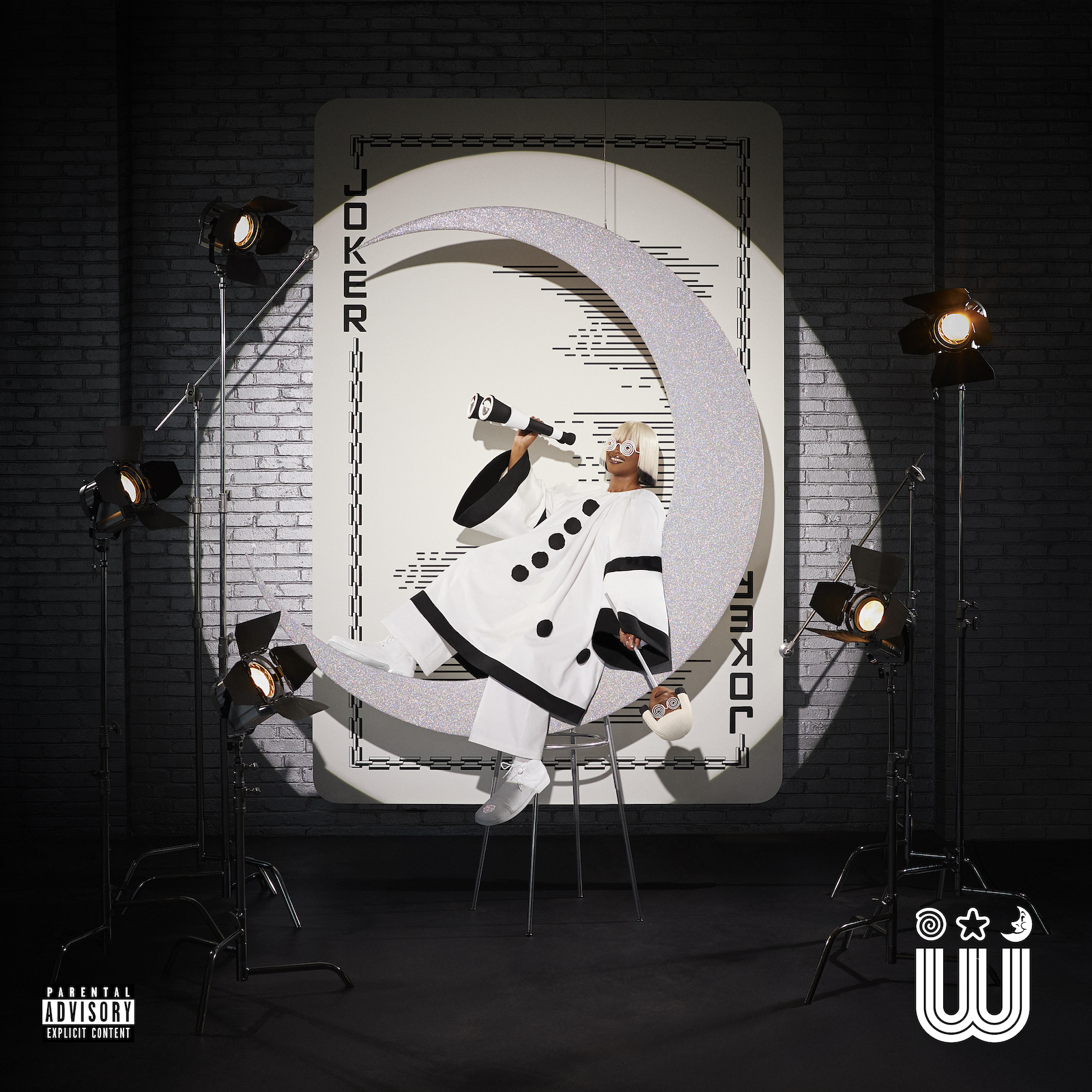
Tierra Whack – World Wide Whack
Interscope
At this point, the best way to describe Tierra Whack’s is to admit you can’t. If you’re totally unfamiliar, she makes some version of lively, off-kilter, hip hop-infused pop music, but that combination of words barely scratches the surface of what you actually hear when you listen to World Wide Whack. It follows 2018’s Whack World, a project with 15 one-minute songs, as well as her 2021 EP trilogy Rap?, Pop?, & R&B?, but she considers World Wide Whack her first proper full-length. It’s definitely her longest and most fleshed-out project yet–not that Whack World wasn’t maximalist in its own way–but it also still has the spontaneity, the quickness, and the brevity that made her past work so immediate. The album’s range is wide, but more important than that is how uniquely Tierra approaches each stylistic shift. Nobody does militant rap the way she does on “X,” or smooth and soulful the way she does on “Mood Swings,” or whimsical and bubbly the way she does on “Shower Song.” It walks the line between outsider art and mass appeal, a very difficult task that Tierra Whack pulls off so well. [A.S.]
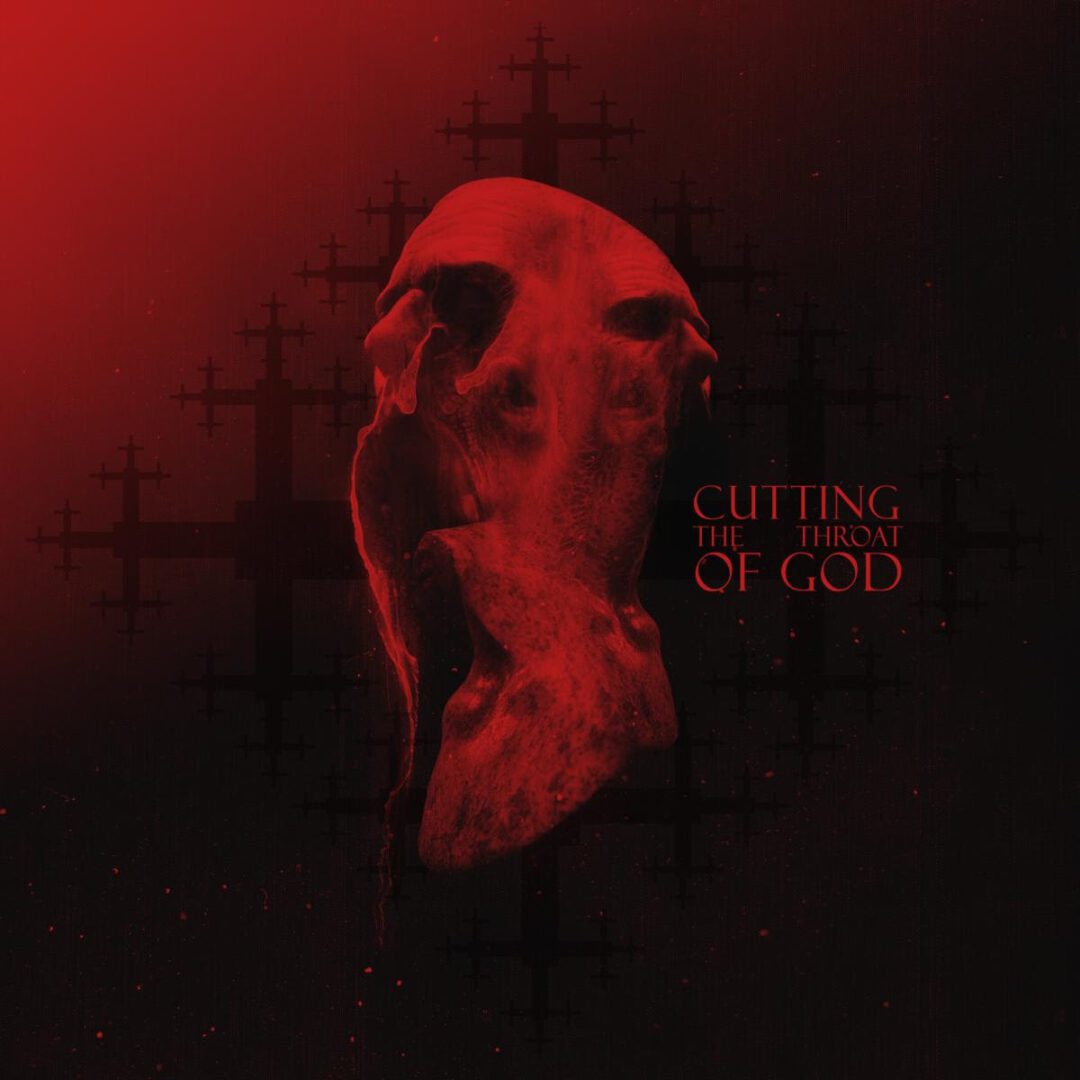
Ulcerate – Cutting the Throat of God
Debemur Morti Productions
Ulcerate simply do not miss. If you’re already on the Ulcerate train, you can probably skip reading about this album and jump straight to listening to it, because Cutting the Throat of God gives you everything you’ve always wanted from an Ulcerate album. For the uninitiated, the New Zealand band are long-running makers of experimental death metal that defies easy categorization and has so much widespread appeal that I’d recommend it even if you don’t really listen to death metal. The hyper-specific world of metal subgenres will have you know that Ulcerate’s death metal is “technical,” “dissonant,” and “atmospheric,” and it’s definitely all of those things, but trying to fit Ulcerate into narrow boxes doesn’t do them any favors. It’s mind-bending, mesmerizing heavy music with a real transportive quality to it, and I think it’d be pretty difficult to listen to this album and not feel moved by it. [A.S.]

Vampire Weekend – Only God Was Above Us
Columbia
“Fuck the world” is how Vampire Weekend begin their fifth album, with a tone that immediately differs from the summery, breezy (yet often deceptively happy-sounding) Father of the Bride. Only God Was Above Us embraces the darker, colder, more claustrophobic vibes of 2013’s Modern Vampires of the City, and like every Vampire Weekend album before it, it sounds both comfortably familiar and refreshingly new. The band has a way of growing and reinventing themselves at each turn, without straying from the instantly-recognizable path that they carved out for themselves on their blog-rock-dominating debut over 16 years ago. And like all truly great bands, they transcended genre and scene a long time ago. They’re just Vampire Weekend, and five albums in, they’re still really good at being Vampire Weekend.
Down to its title, Only God Was Above Us goes for big ideas that would come off as pretentious in the wrong band’s hands. Orchestral arrangements and studio-as-an-instrument wizardry augment an art rock approach that would sound adventurous even if it was stripped down to its barest elements. The chaotic whimsy (or is it whimsical chaos?) of the band’s earlier work returns in new ways. Lyrics explore philosophy, sociology, religion, and war. The album’s main character is New York City, explored by way of Grant’s Tomb, the long-in-process Water Tunnel 3, a now-closed tie shop in Penn Station, and 1982’s “New Queen of the Art Scene” Mary Boone. The ideas are colossal, and yet, Only God Was Above Us often sounds intimate, much more so than the sprawling double album that preceded it ever did. It’s catchy and concise (even the eight-minute closer “Hope” feels that way) and it goes down remarkably easy given all the complexities weaved into these songs. [A.S.]
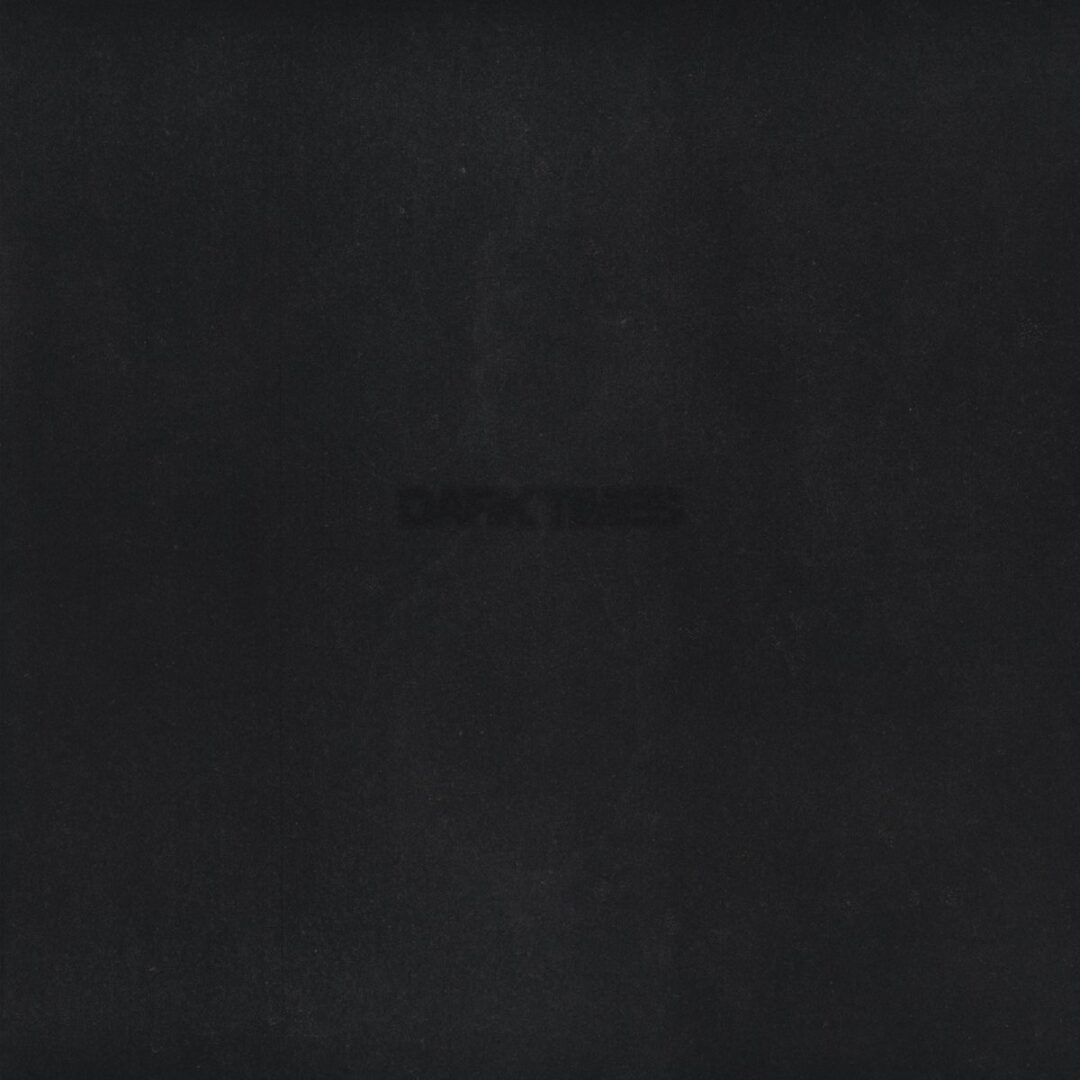
Vince Staples – Dark Times
Blacksmith/Def Jam
Vince Staples has made so many different types of rap songs over the years, and lately he seems most interested in making personal, introspective rap songs that favor lyrical depth over easily-digestible hooks. That’s very much the vein that his 2021 self-titled album and much of his 2022 album Ramona Park Broke My Heart were in, and it’s also the vein that his new album Dark Times is in. He’s pillowed by some background singers and spoken word clips, but Vince is the only rapper on the album, and he lays out dense stories that require (and deserve) multiple listens to fully dive into. He’s had his crossover tracks over the years, but on these last few albums, it feels like he’s really making music for himself and his loyal fanbase. His whole career has been a journey and Dark Times is an intriguing new chapter of it, a series of soul-searching tales set to a chilled-out backdrop that’s perfect for immersing yourself in. [A.S.]
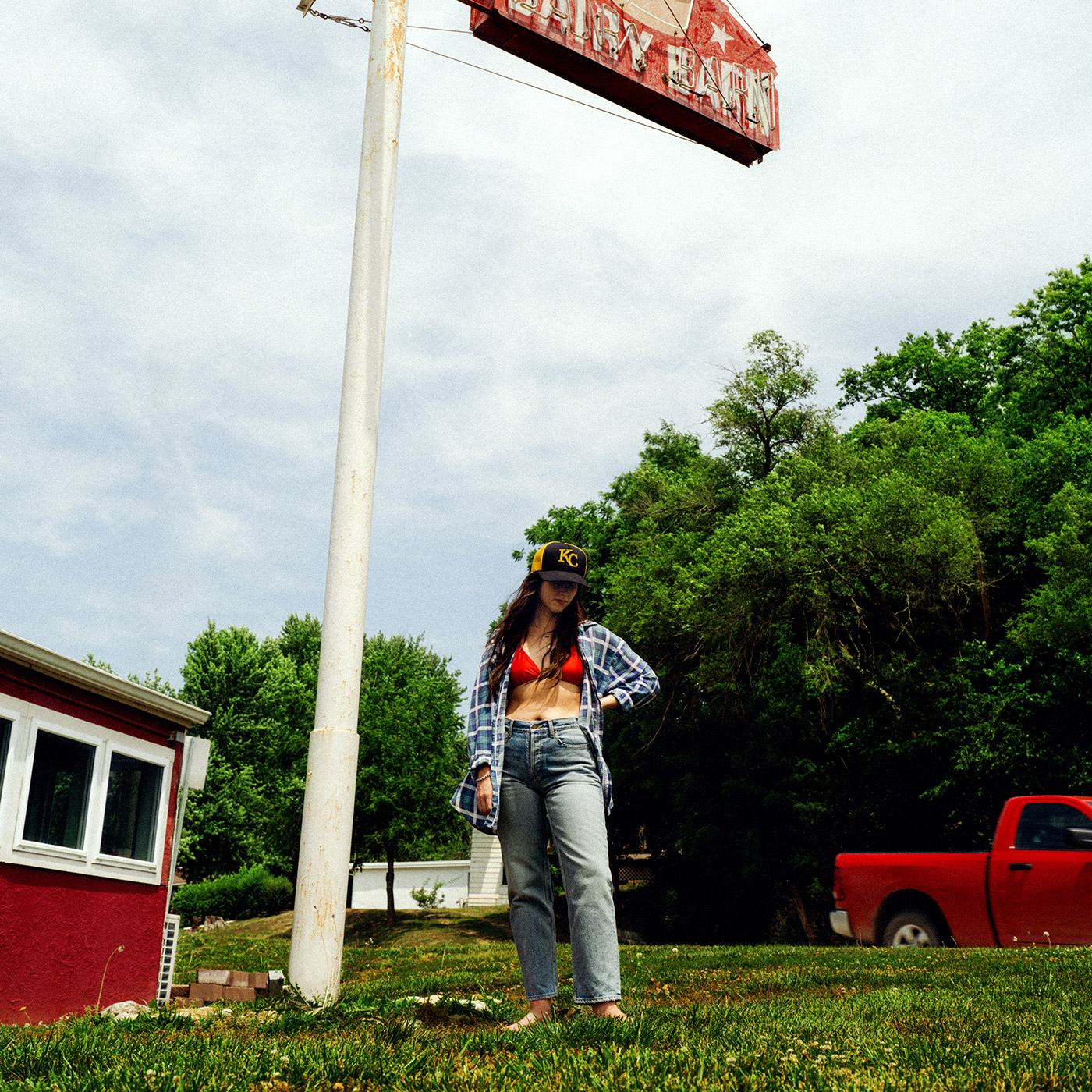
Waxahatchee – Tigers Blood
ANTI-
With 2020’s Saint Cloud, released roughly a decade and five albums into her career as Waxahatchee, Katie Crutchfield released the biggest album of her career. Katie, whose public-facing music career dates back even further to her days playing punk houses with P.S. Eliot and The Ackleys, carried some of that grit into her early days as Waxahatchee, but Saint Cloud just about fully polished it off in favor of warm, lush Americana. It was just the direction that the Alabama-born singer/songwriter’s music was heading in at that time, but it happened to coincide with the indie rock community starting to embrace a love of country music–a love that’s only strengthened in the four years since. With more attention on Waxahatchee than ever and even more of an interest in countrified indie than there was in 2020, Katie and Saint Cloud producer Brad Cook keep their twangy fire lit on Tigers Blood.
The new record actually almost went in a different direction–Katie’s said in interviews that there was a minute when Tigers Blood almost embraced a more electronic pop vibe–but Katie ultimately decided that this “Southern alternative rock” place is where she feels most comfortable right now, and part of that decision was inspired by MJ Lenderman, who also currently finds himself at the forefront of countrified indie as both a solo artist and a member of Wednesday. MJ came in early in the process to jam with Katie and Brad, and Katie’s said that after they laid down the song “Right Back To It,” it became the spark that informed the direction of this whole album. That song became a duet with MJ Lenderman, whose rustic tone is a perfect foil for Katie’s ever-towering voice, and MJ ended up playing guitar on every song and adding backing harmonies to three others.
Katie’s repeatedly mentioned Tom Petty and Lucinda Williams as heroes in recent interviews, and it’s easy to see the ways that she follows in their footsteps, as a great American songwriter whose craft ever-so-gradually evolves over time. On Tigers Blood, she finds herself in a place where her songwriting is calmer and more peaceful compared to the darker themes that came through on Saint Cloud. There are songs about love, songs about growing apart from old friends, and just in general it feels like an album about growth, an album informed by the perspective and wisdom that comes with doing this as long as Katie Crutchfield has. Tom Petty and Lucinda Williams were roughly two decades into their careers when they put out some of their most widely-beloved albums, and similarly, Katie is just continuing to hit new strides. [A.S.]
5 Honorable Mentions
200 Stab Wounds – Manual Manic Procedures (Metal Blade)
Bill Ryder-Jones – Iechyd Da (Domino)
Eliza McLamb – Going Through It (Royal Mountain)
MGMT – Loss of Life (Mom + Pop)
Yaya Bey – Ten Fold (Big Dada)
—
Browse the Notable Releases and Indie Basement archives for many more album reviews from this year.
